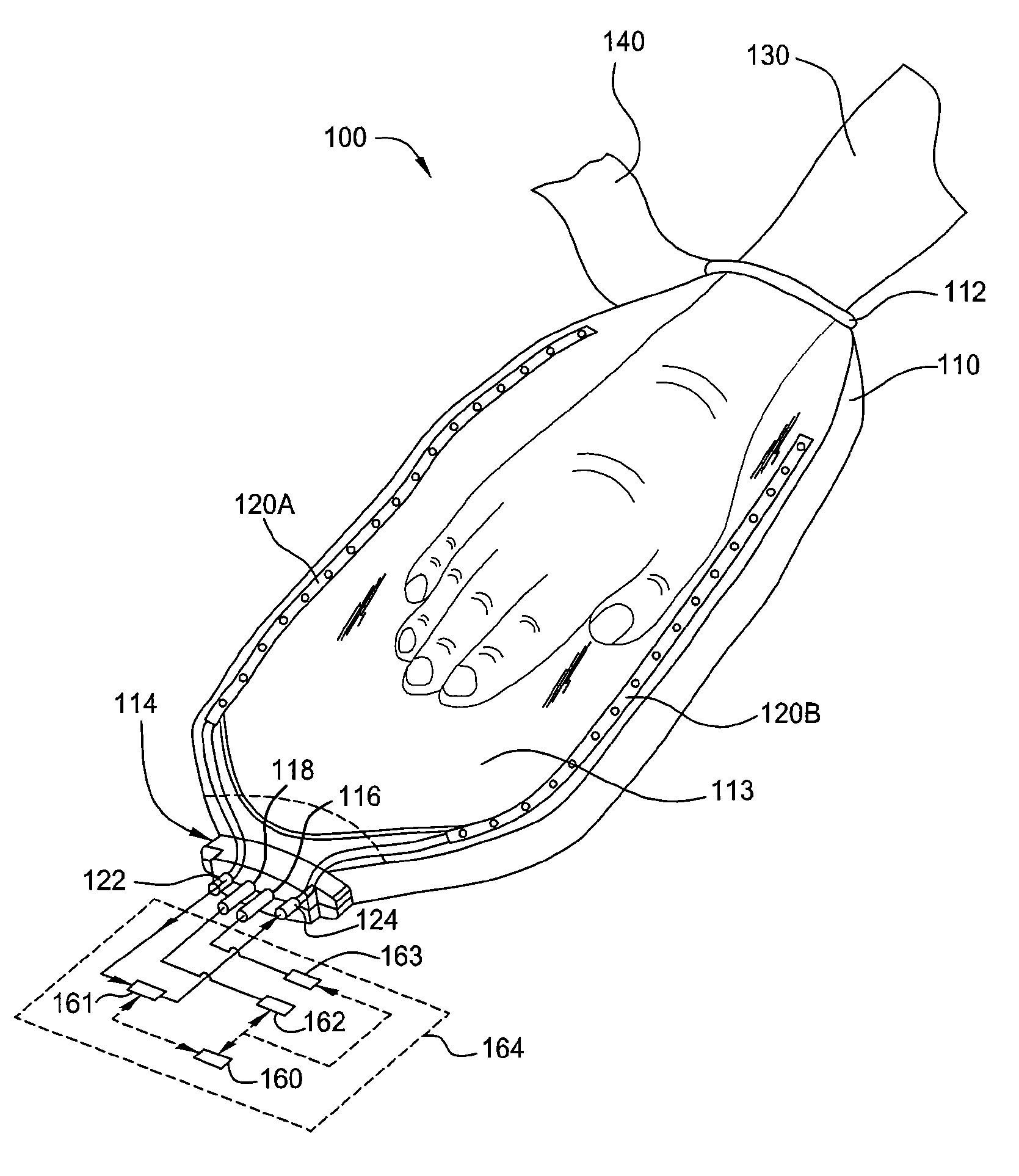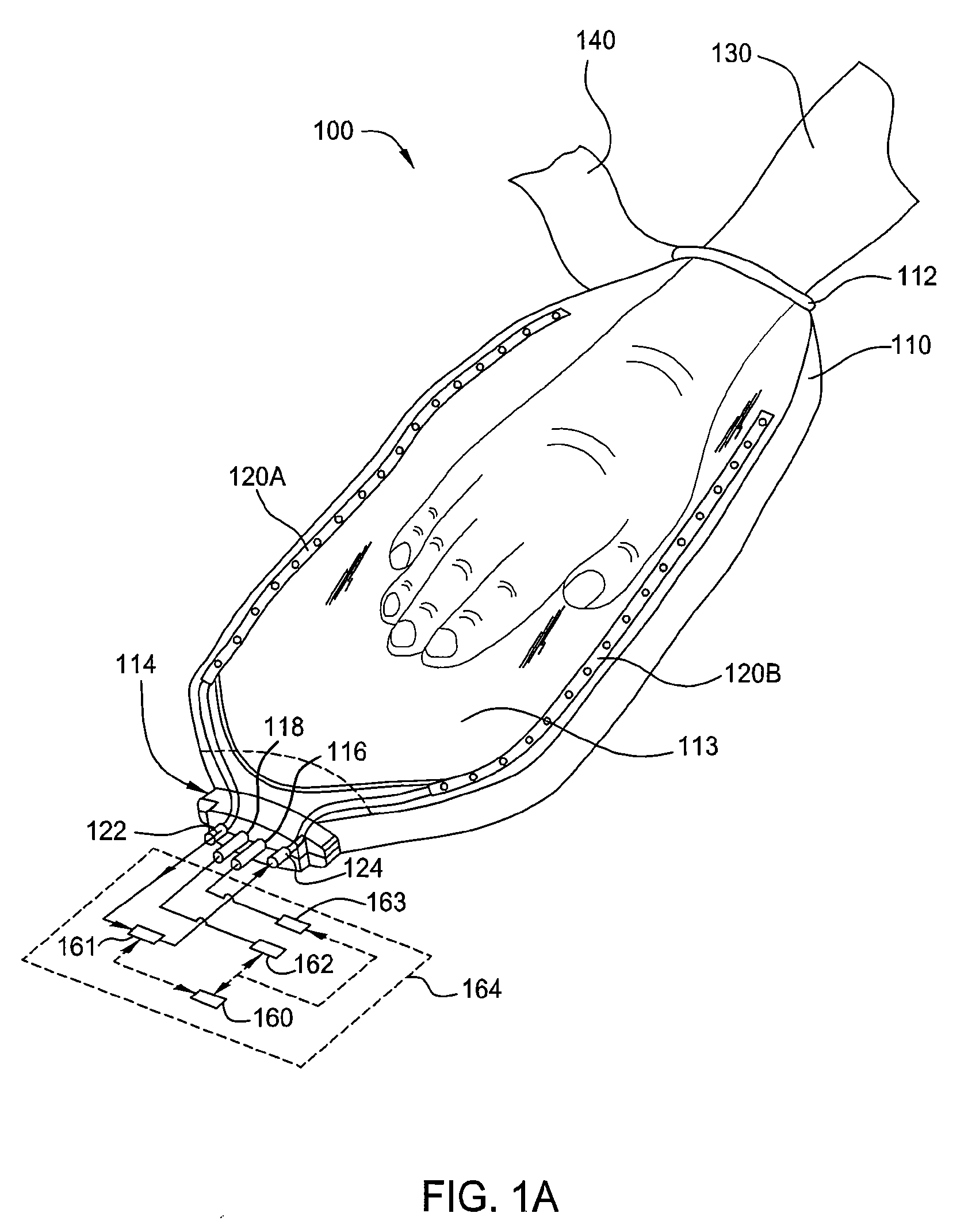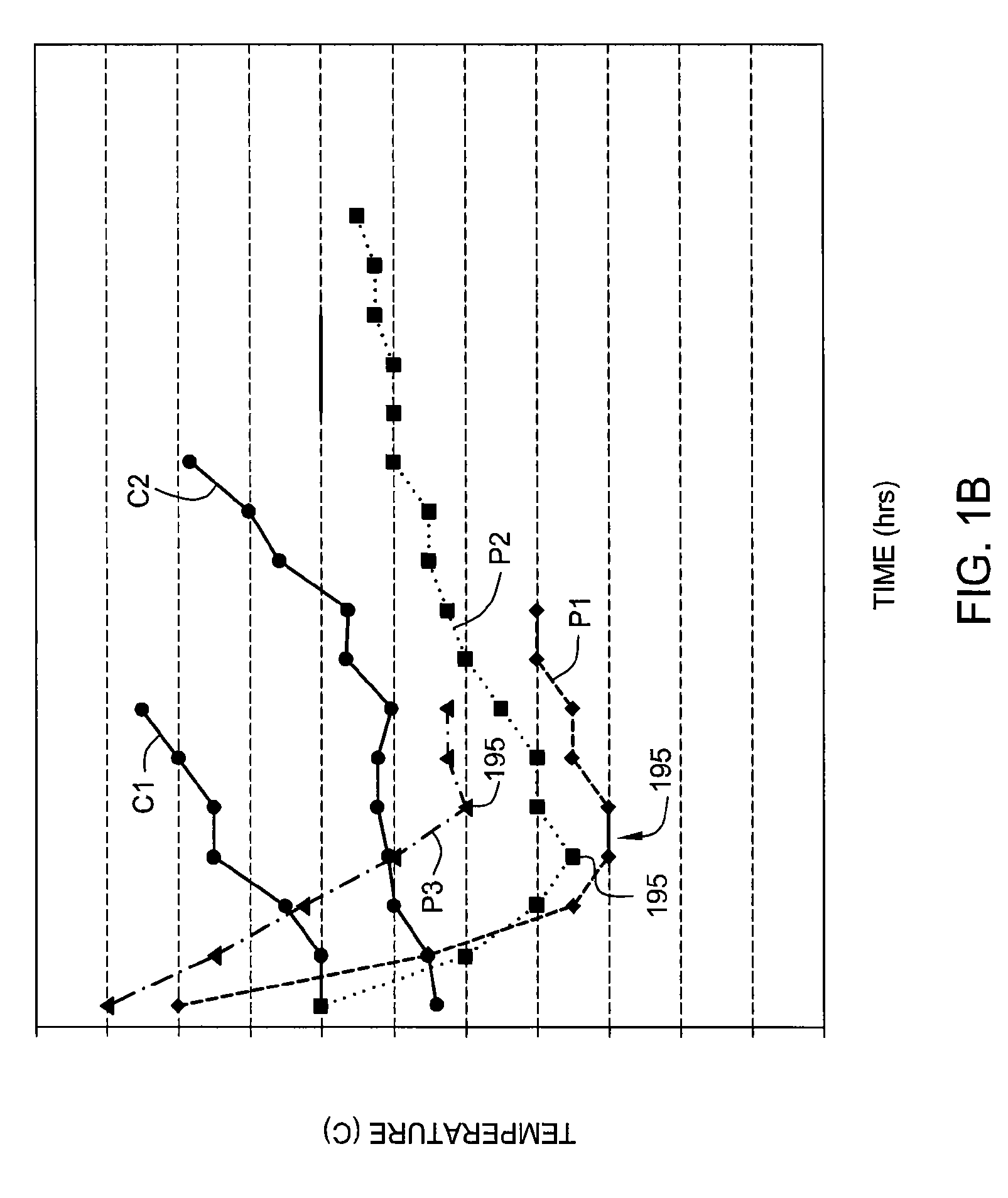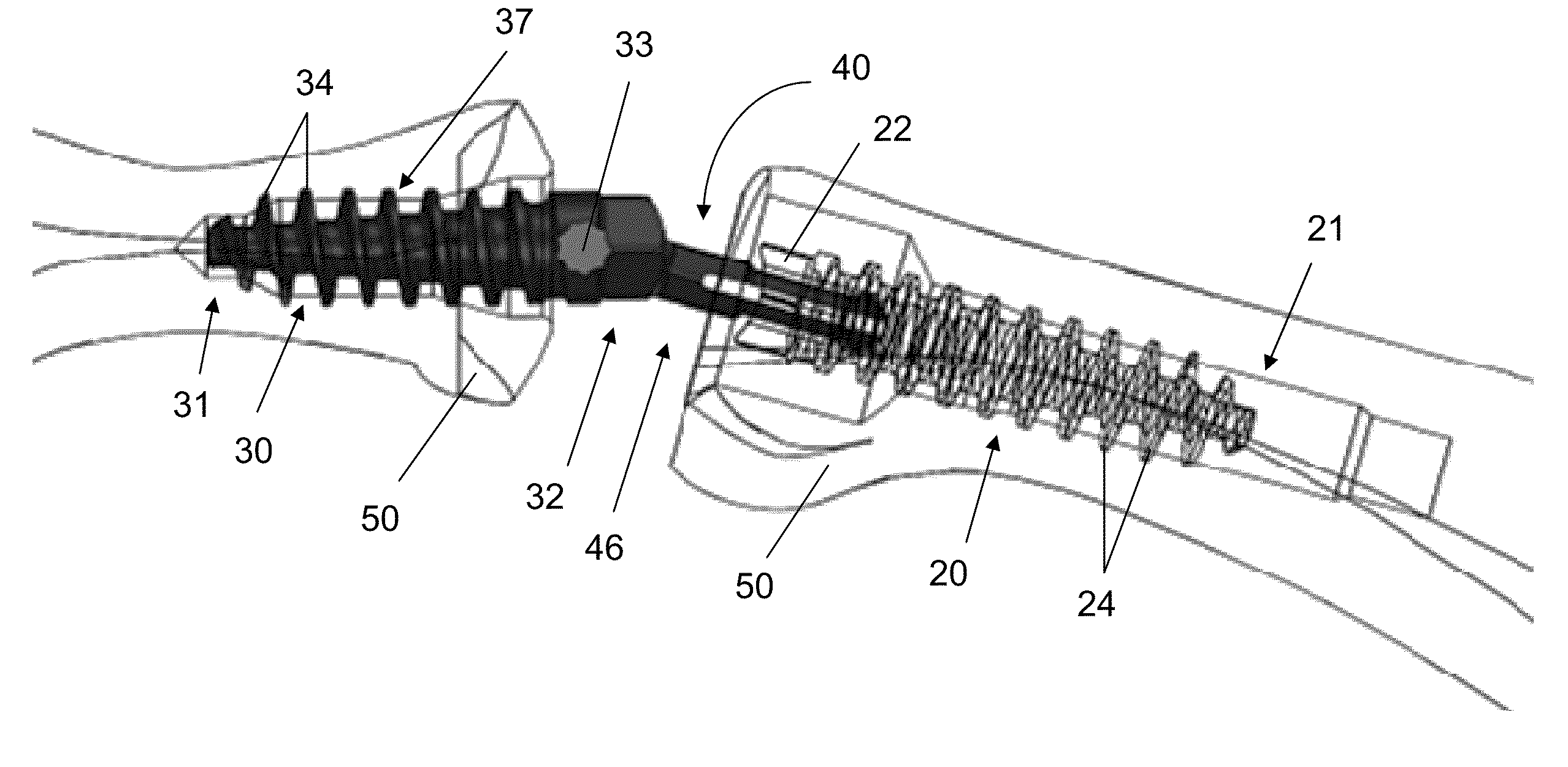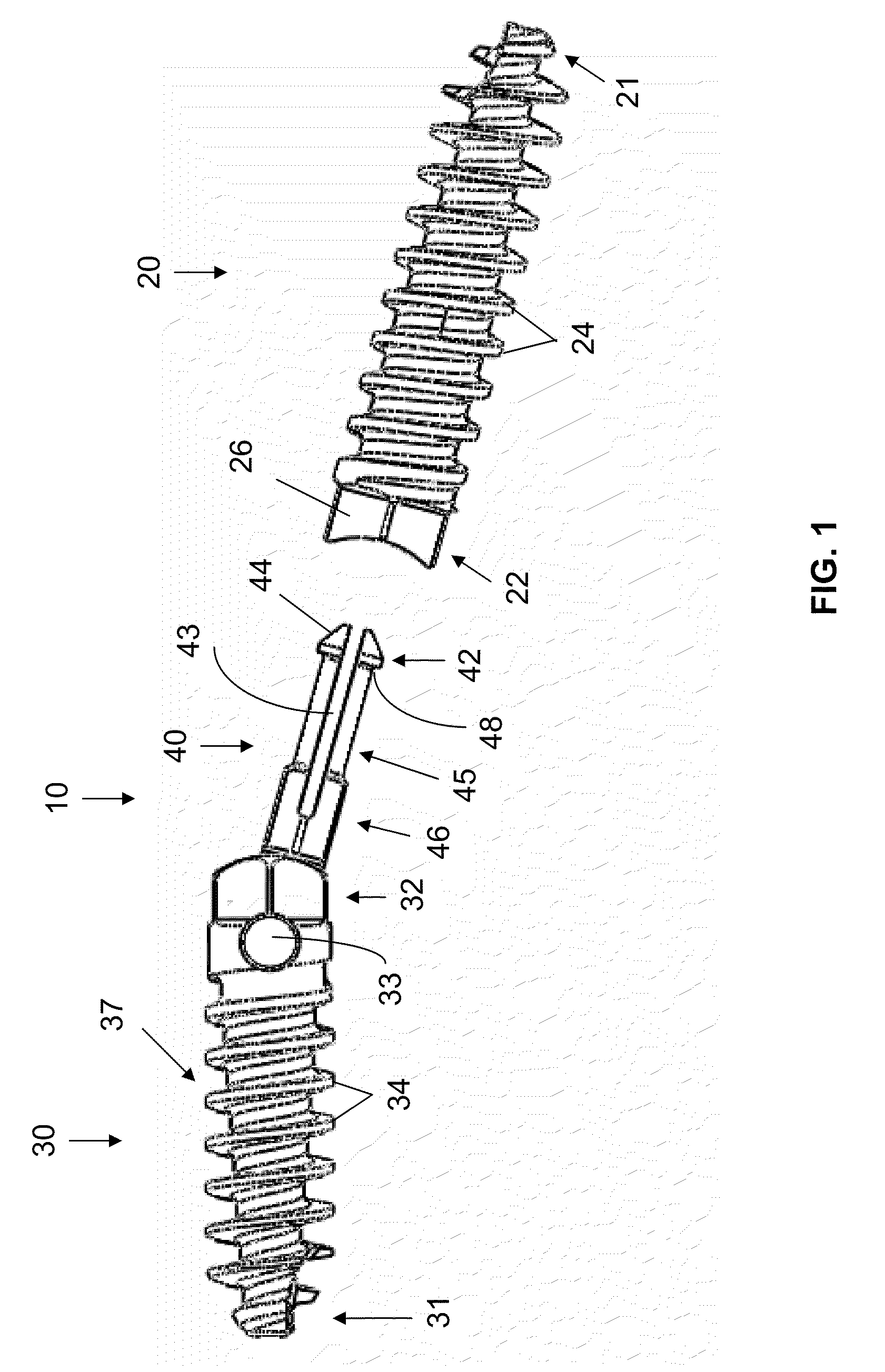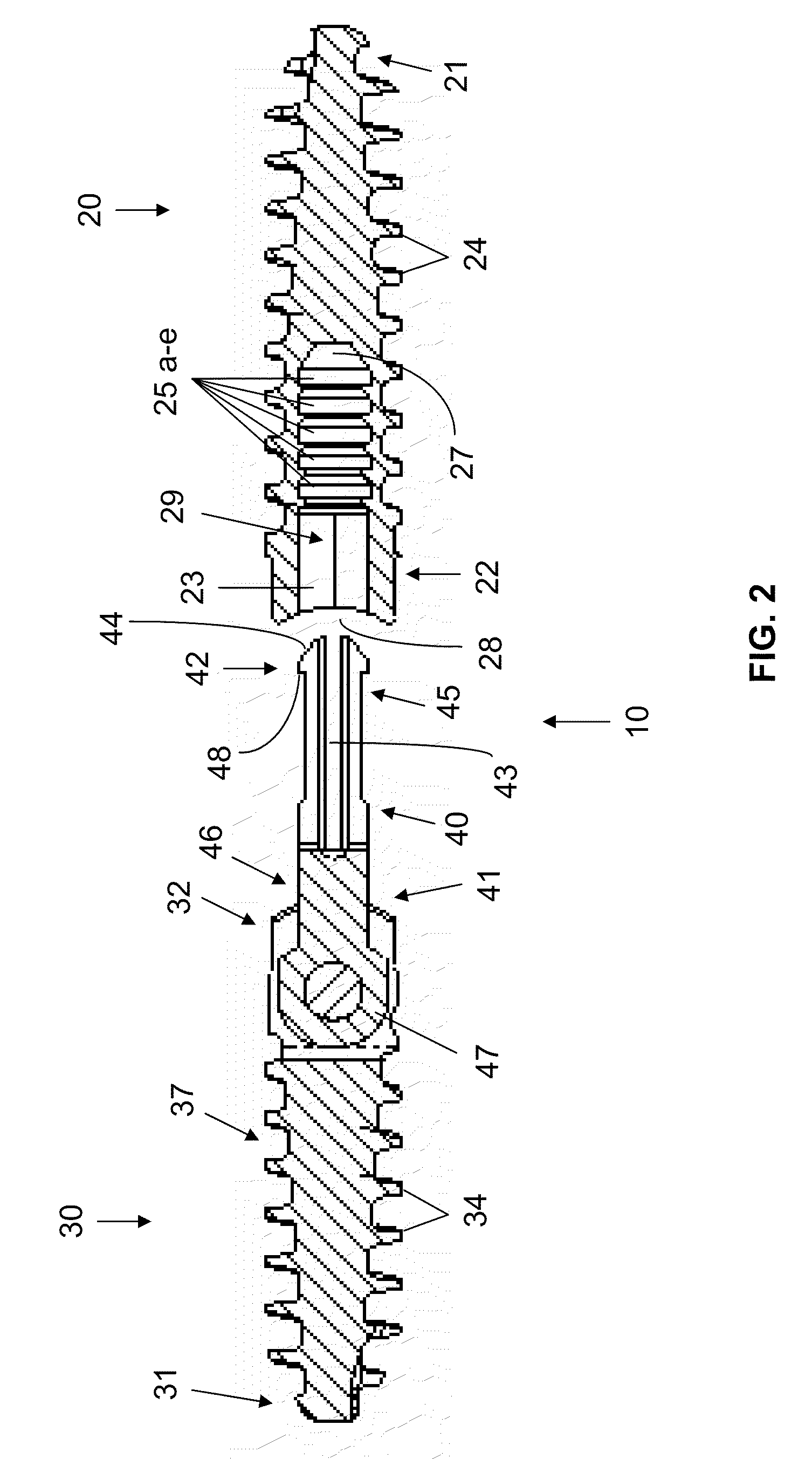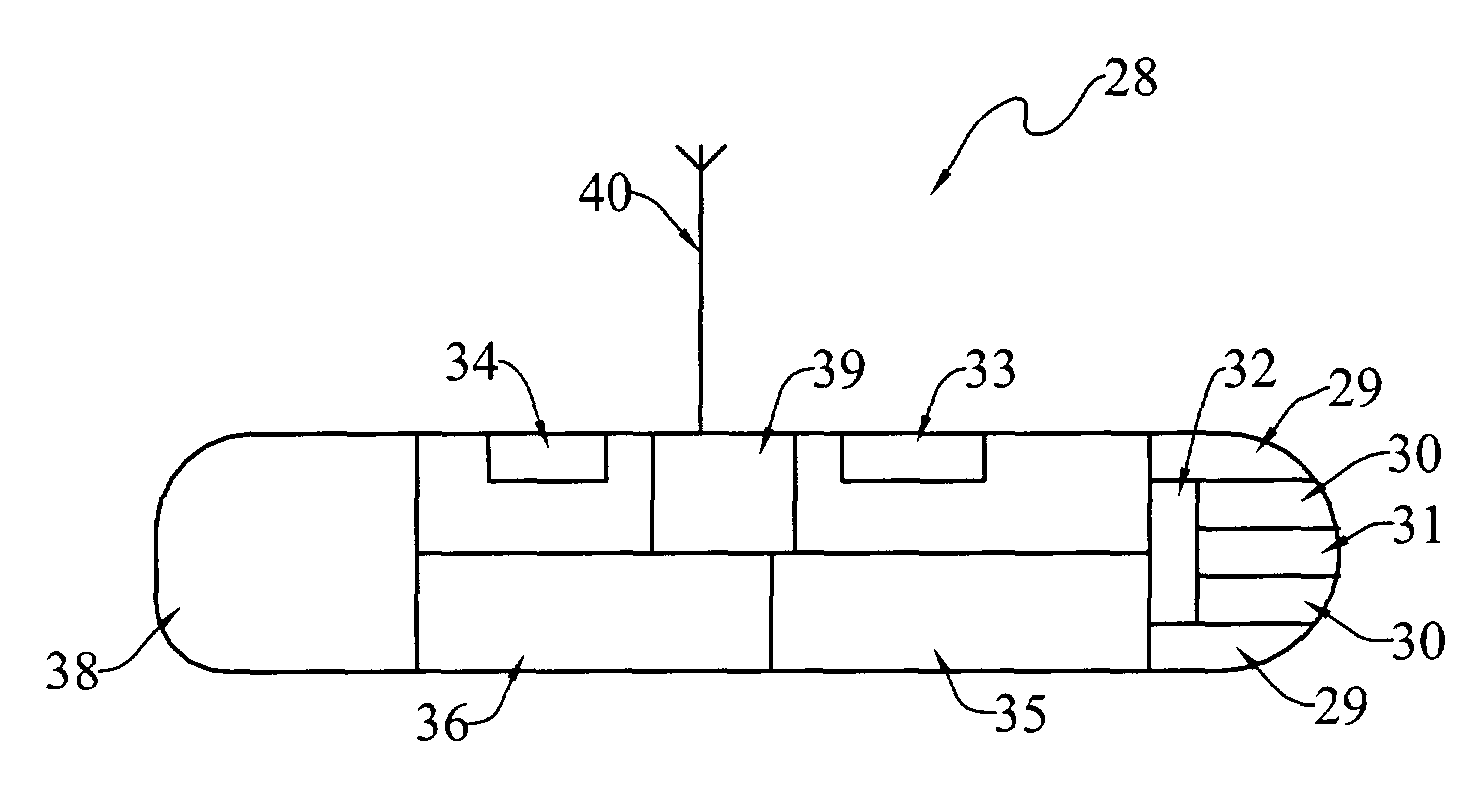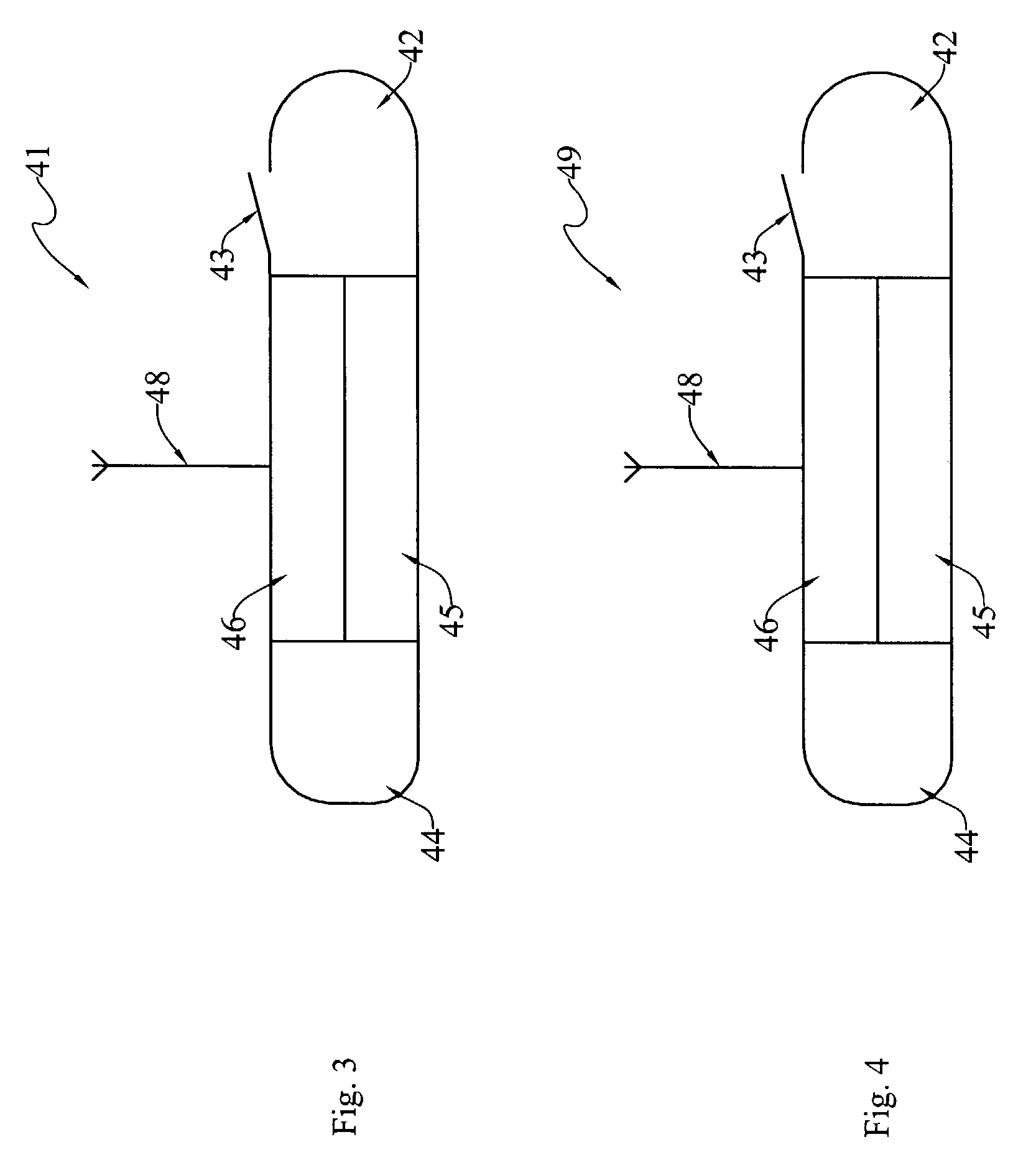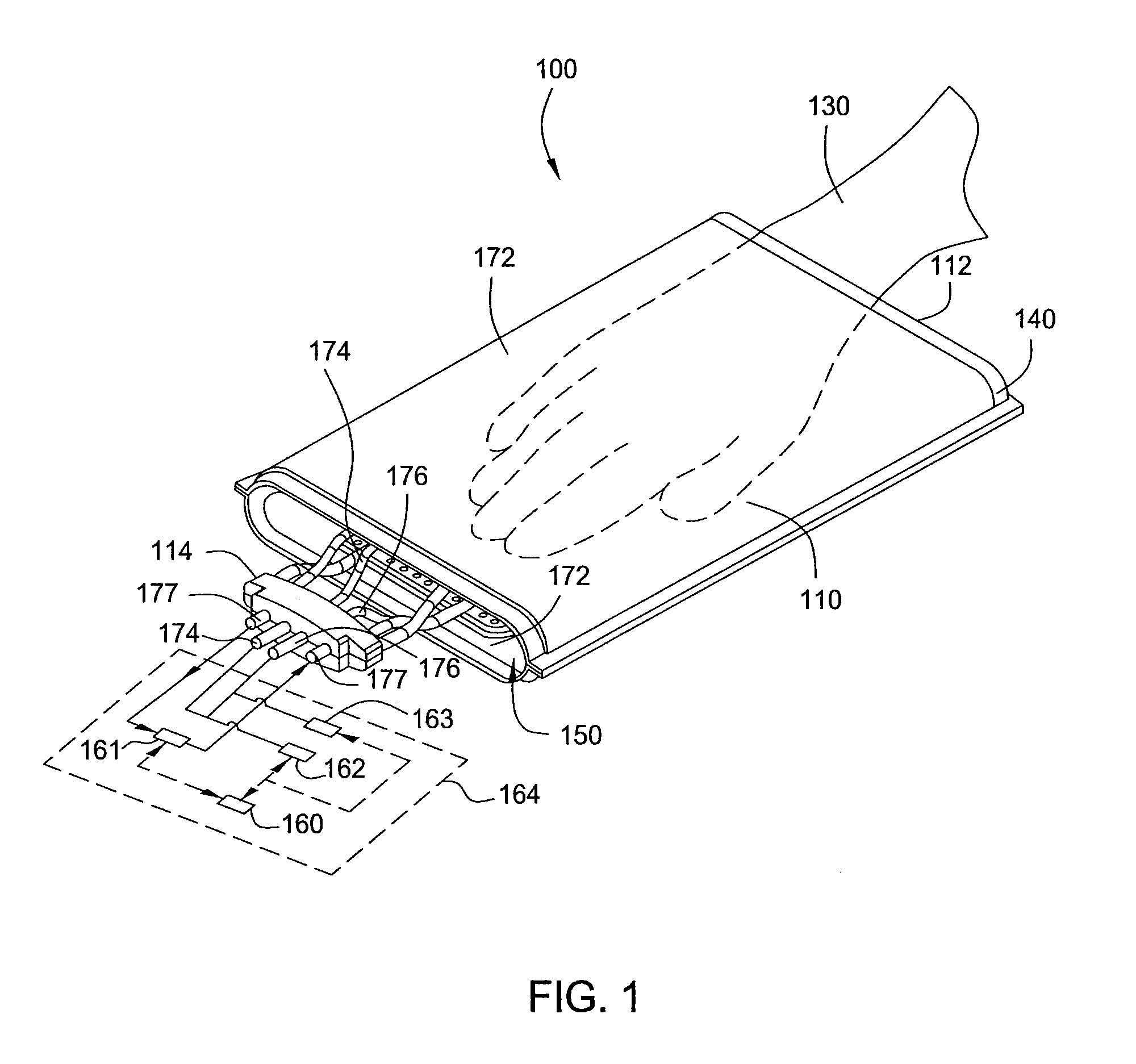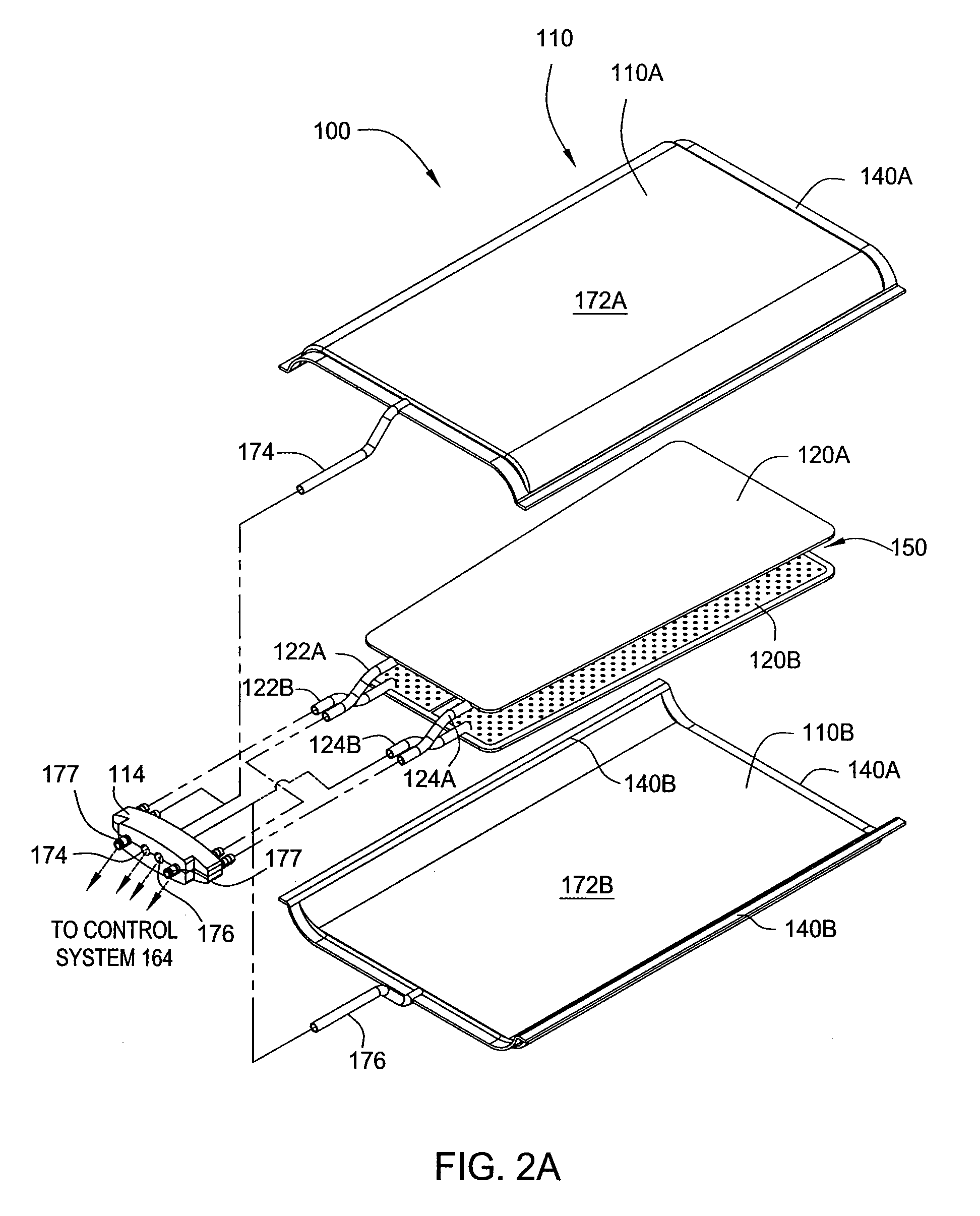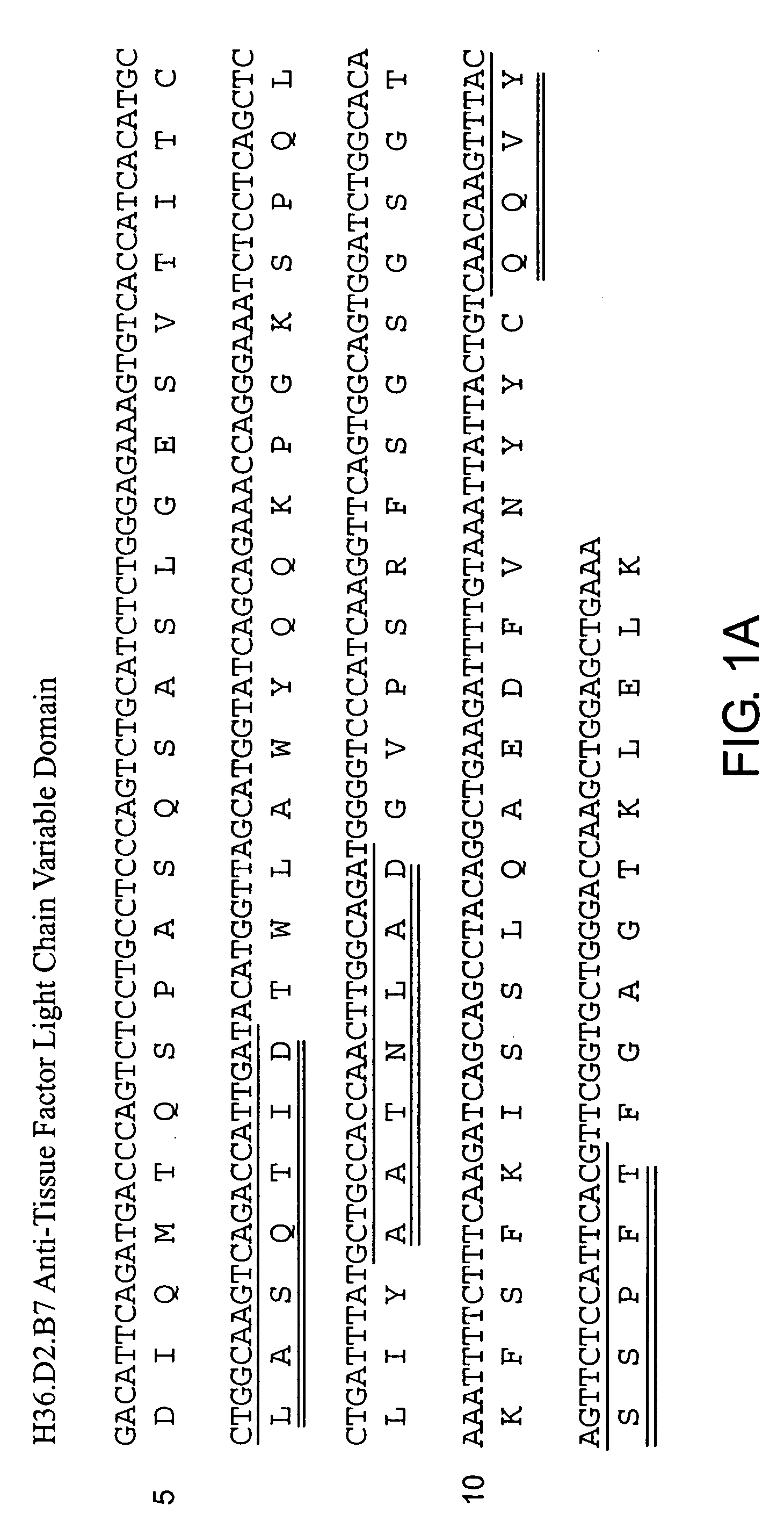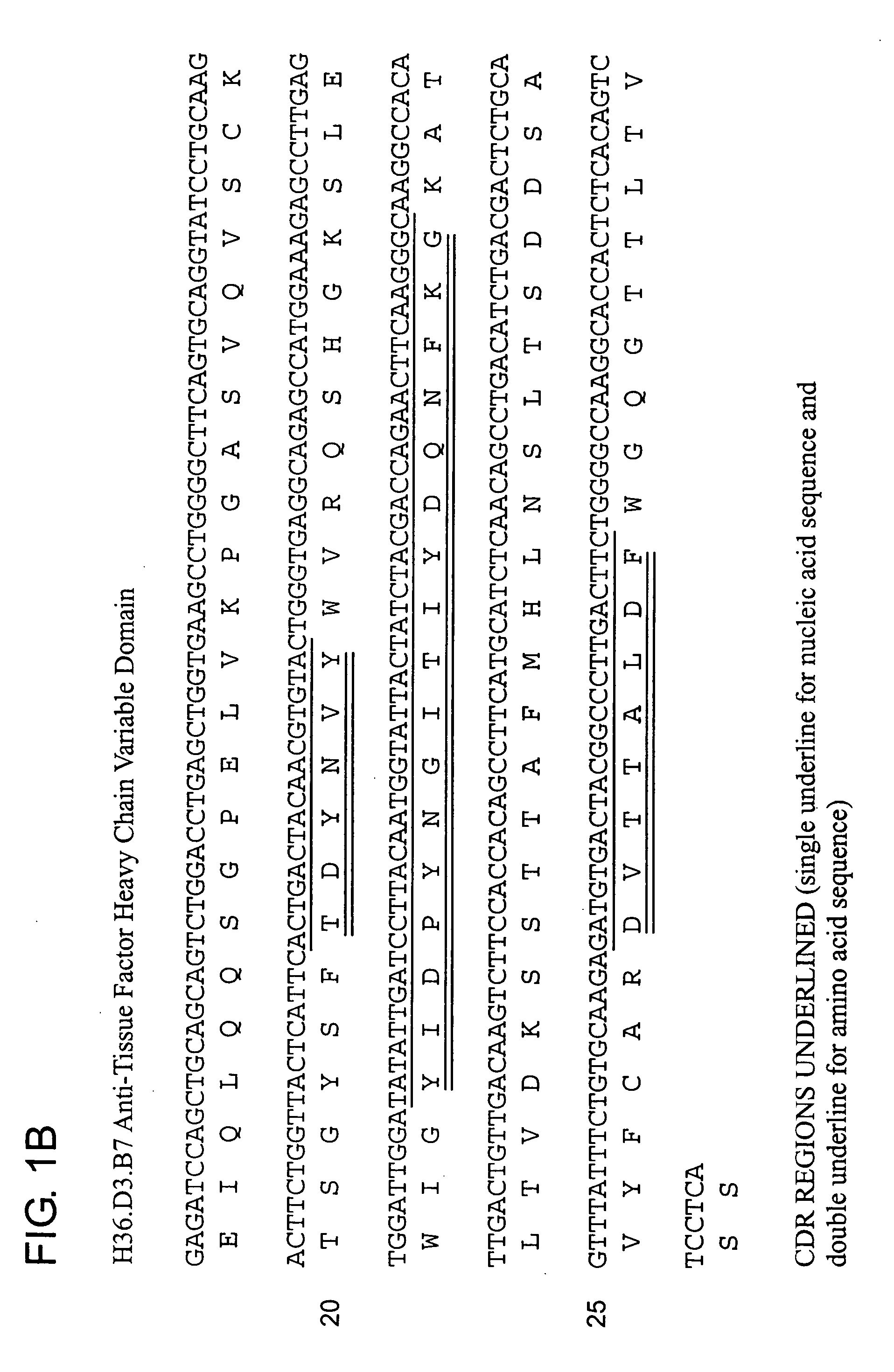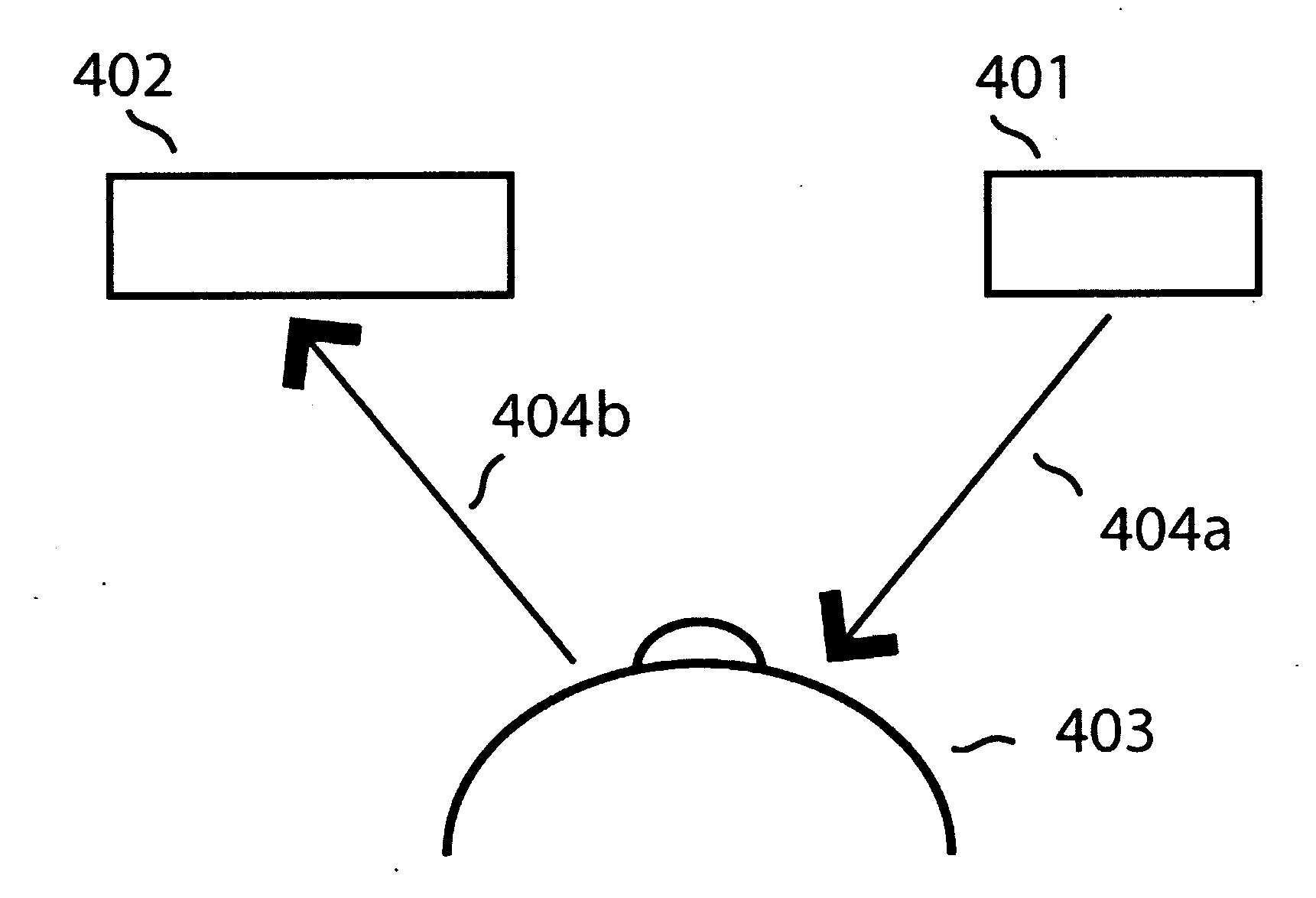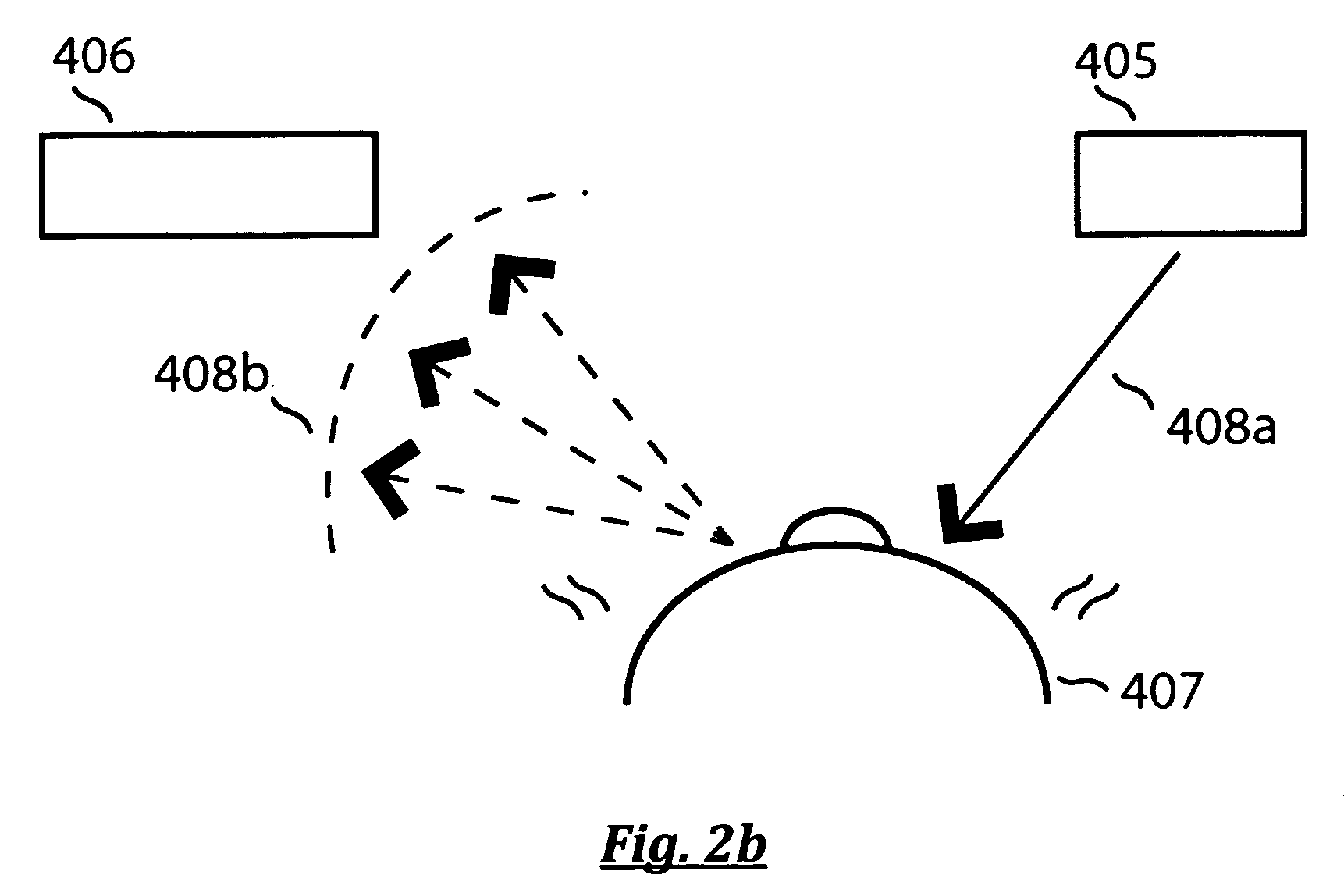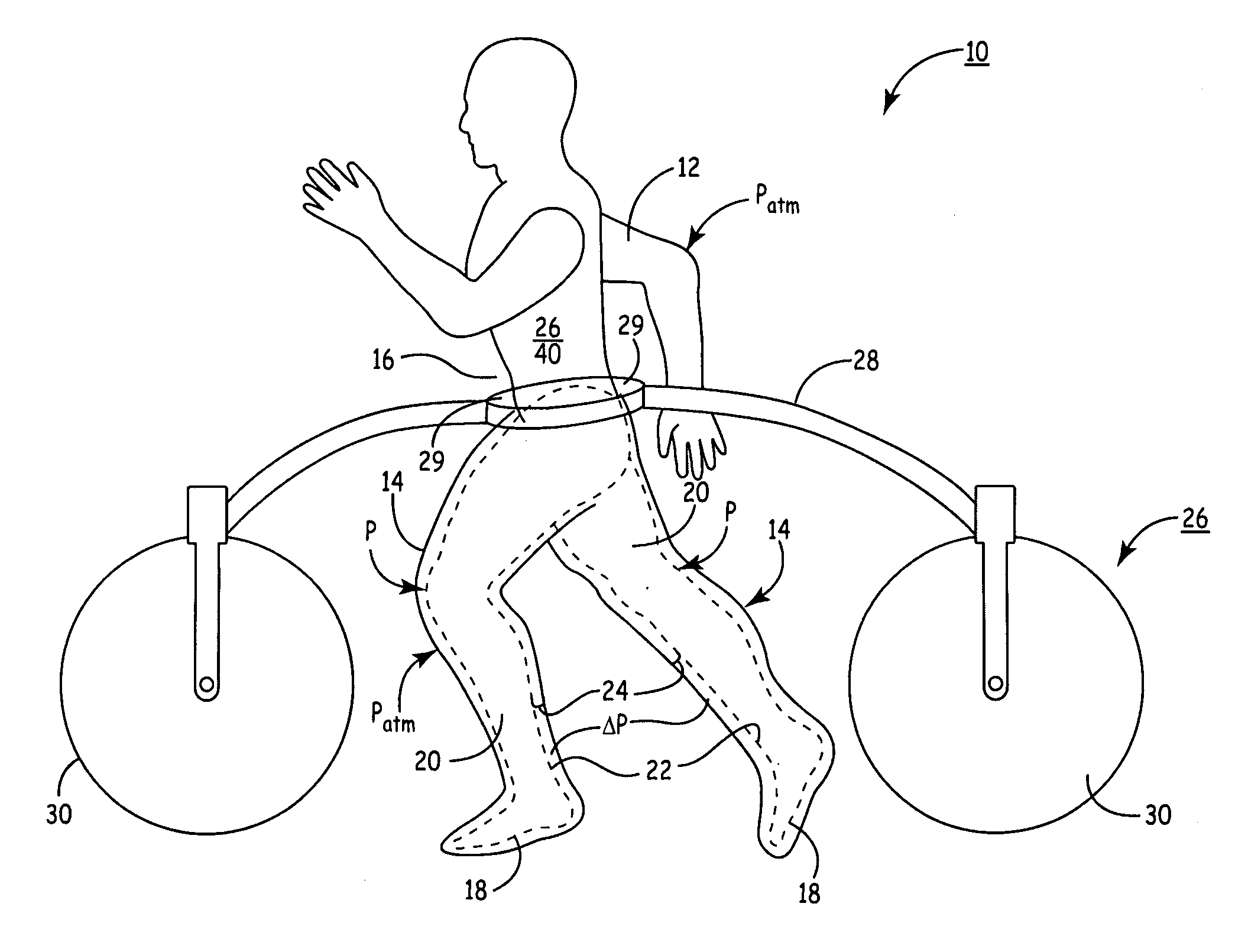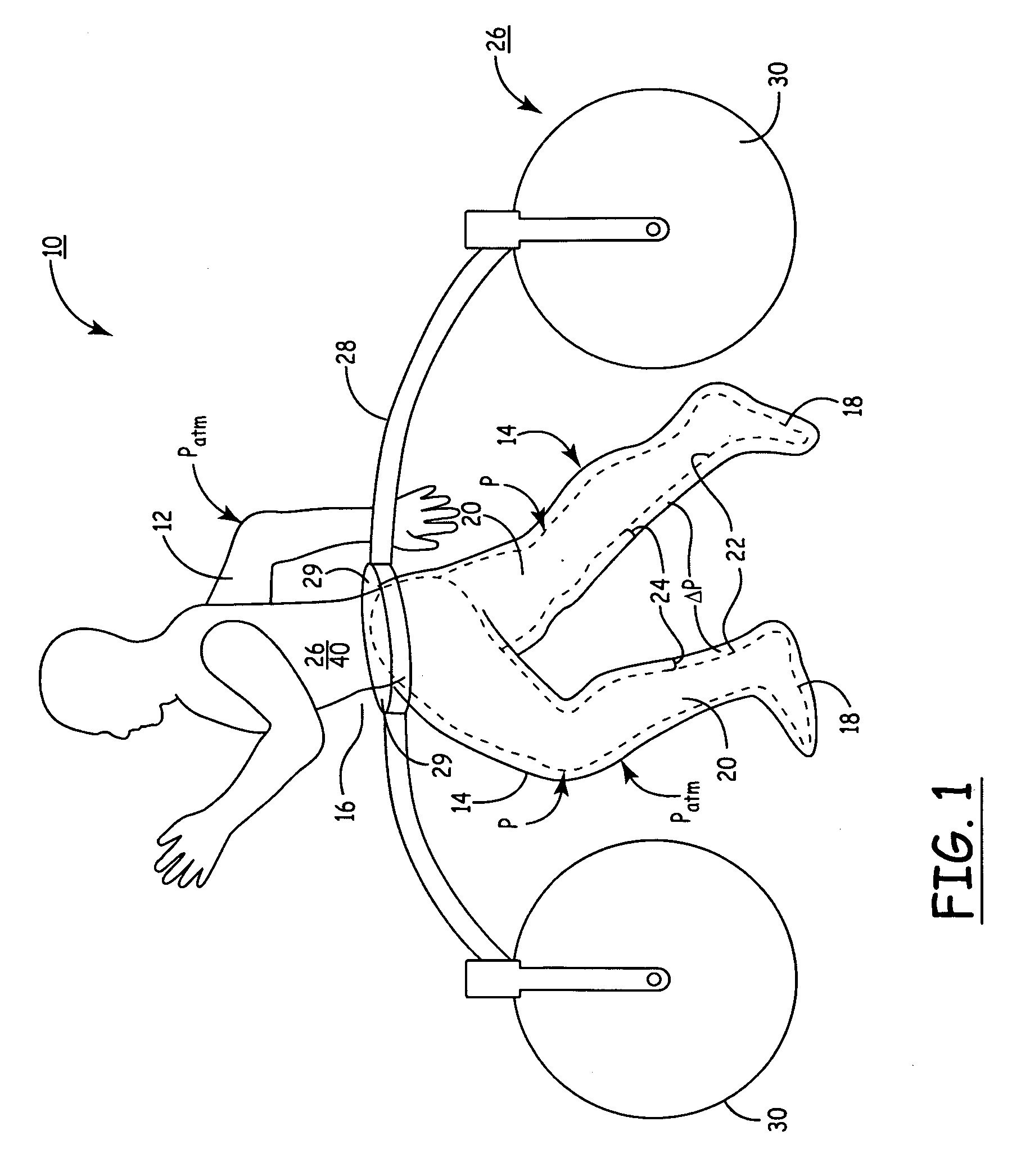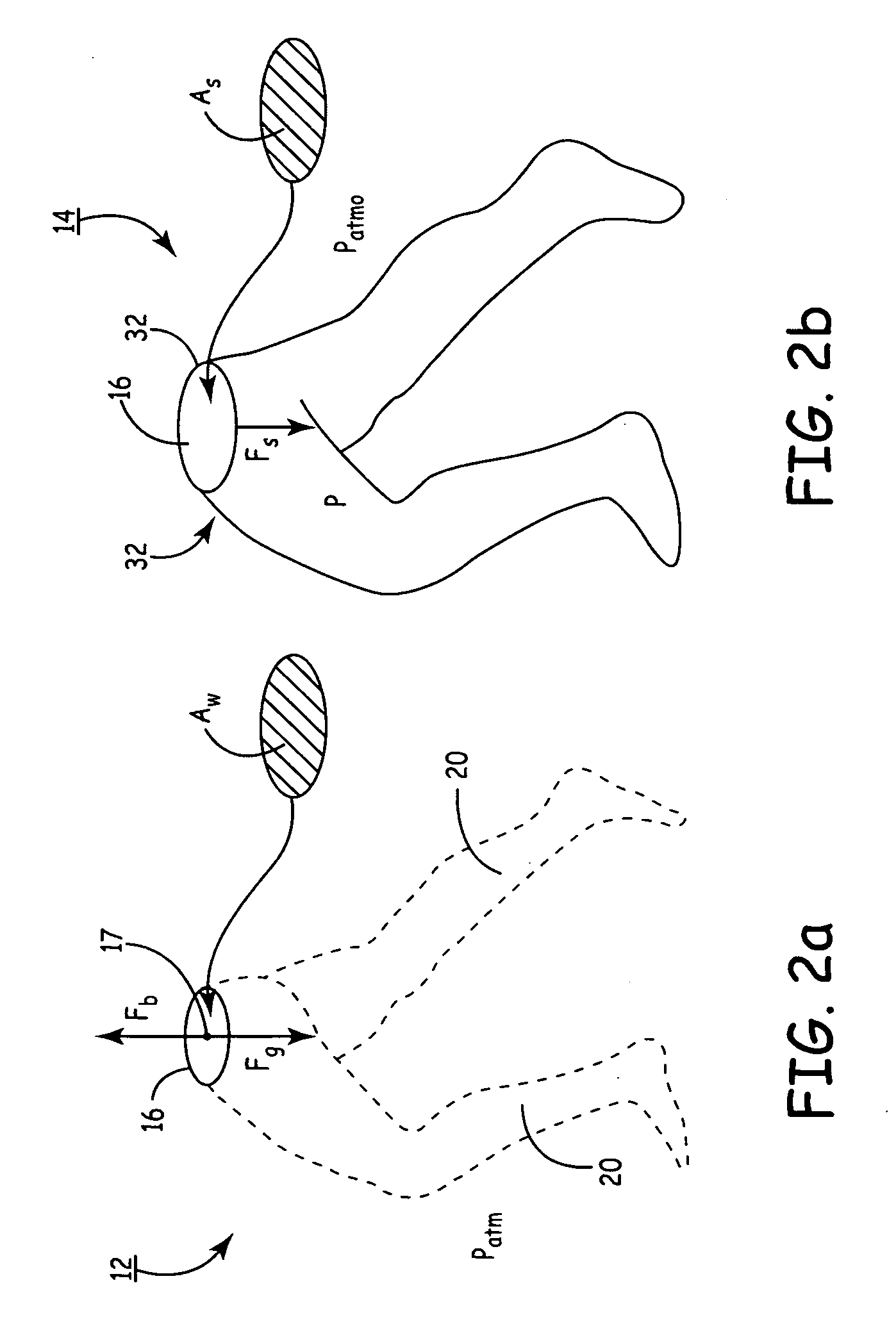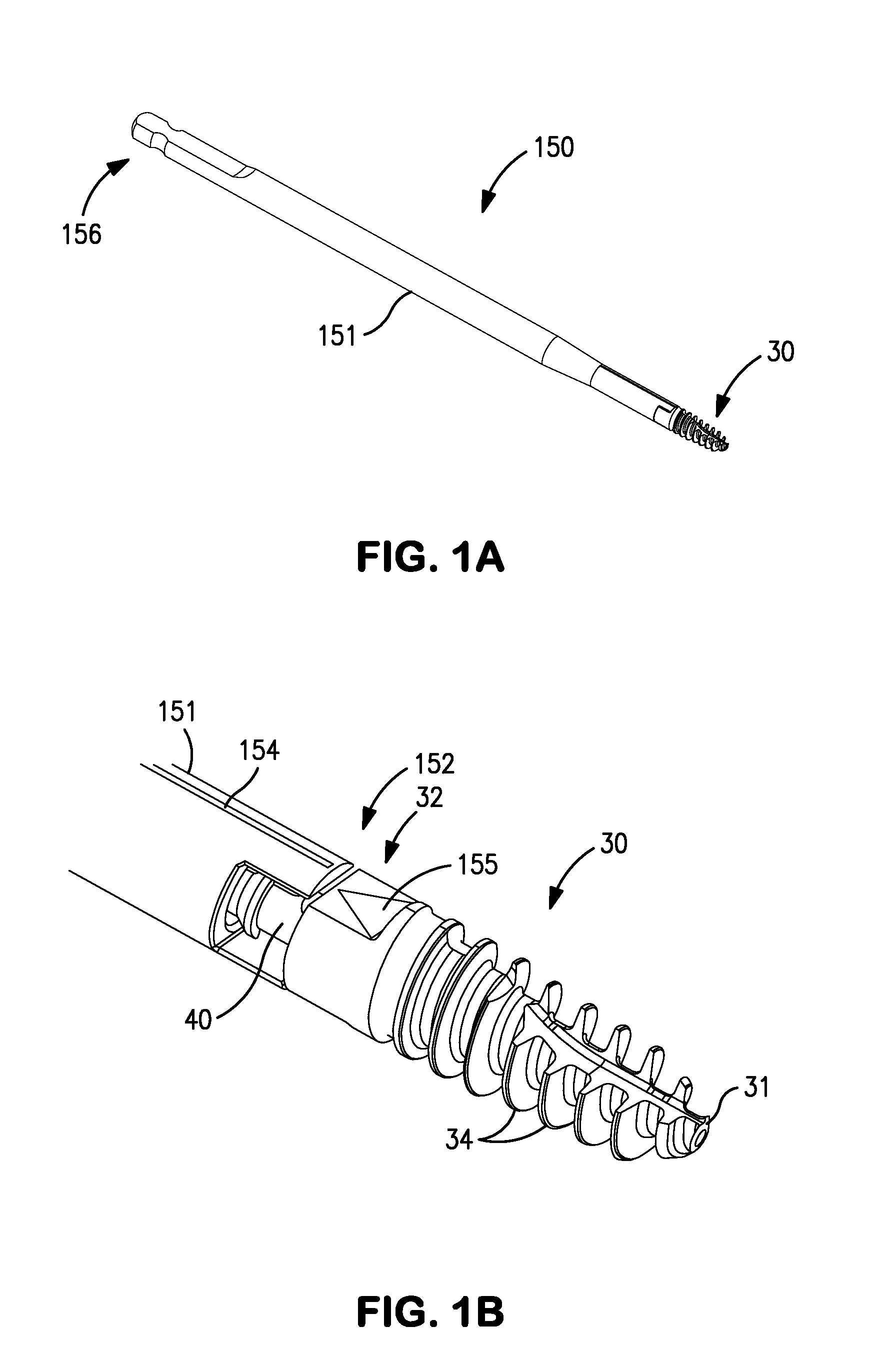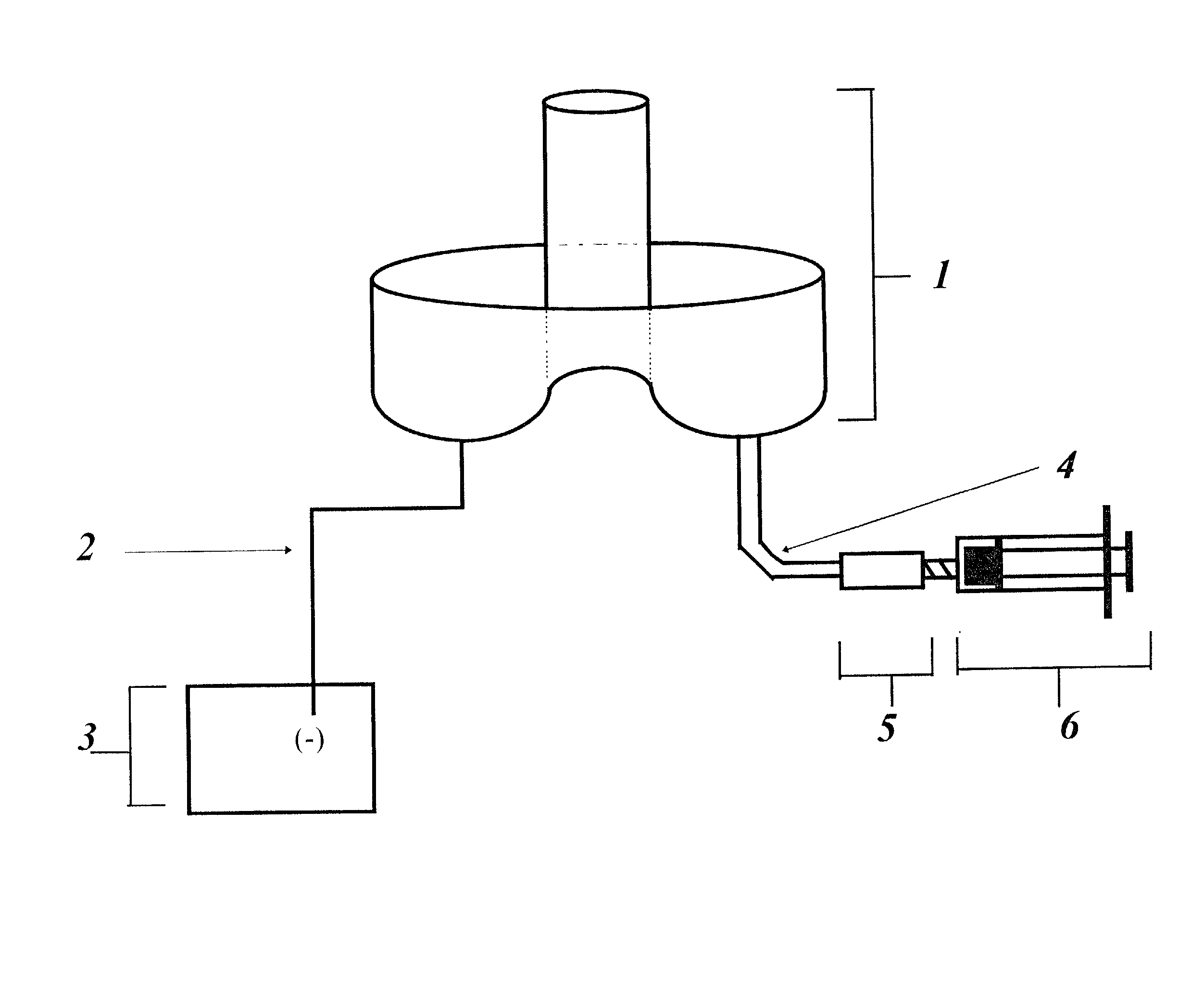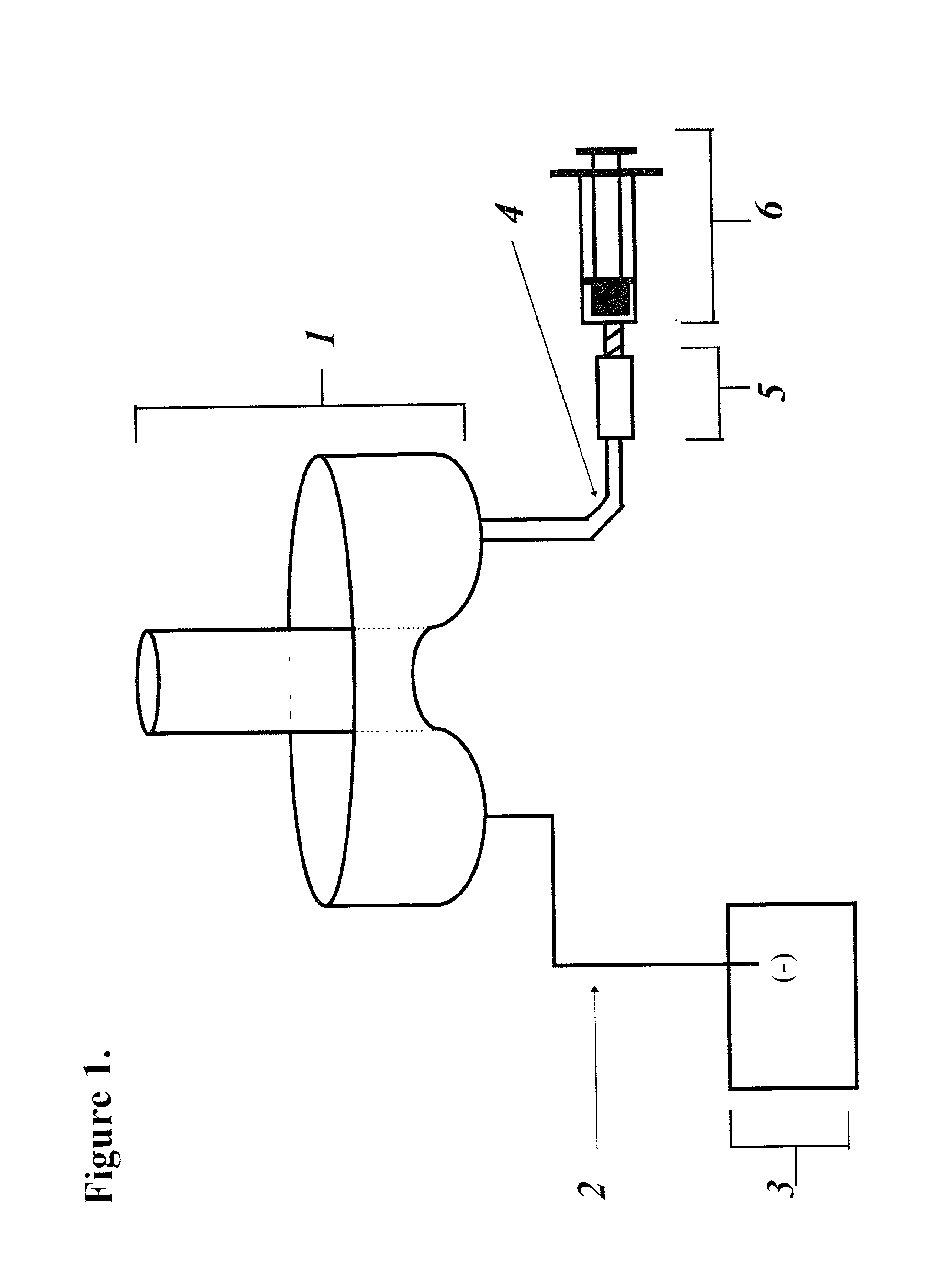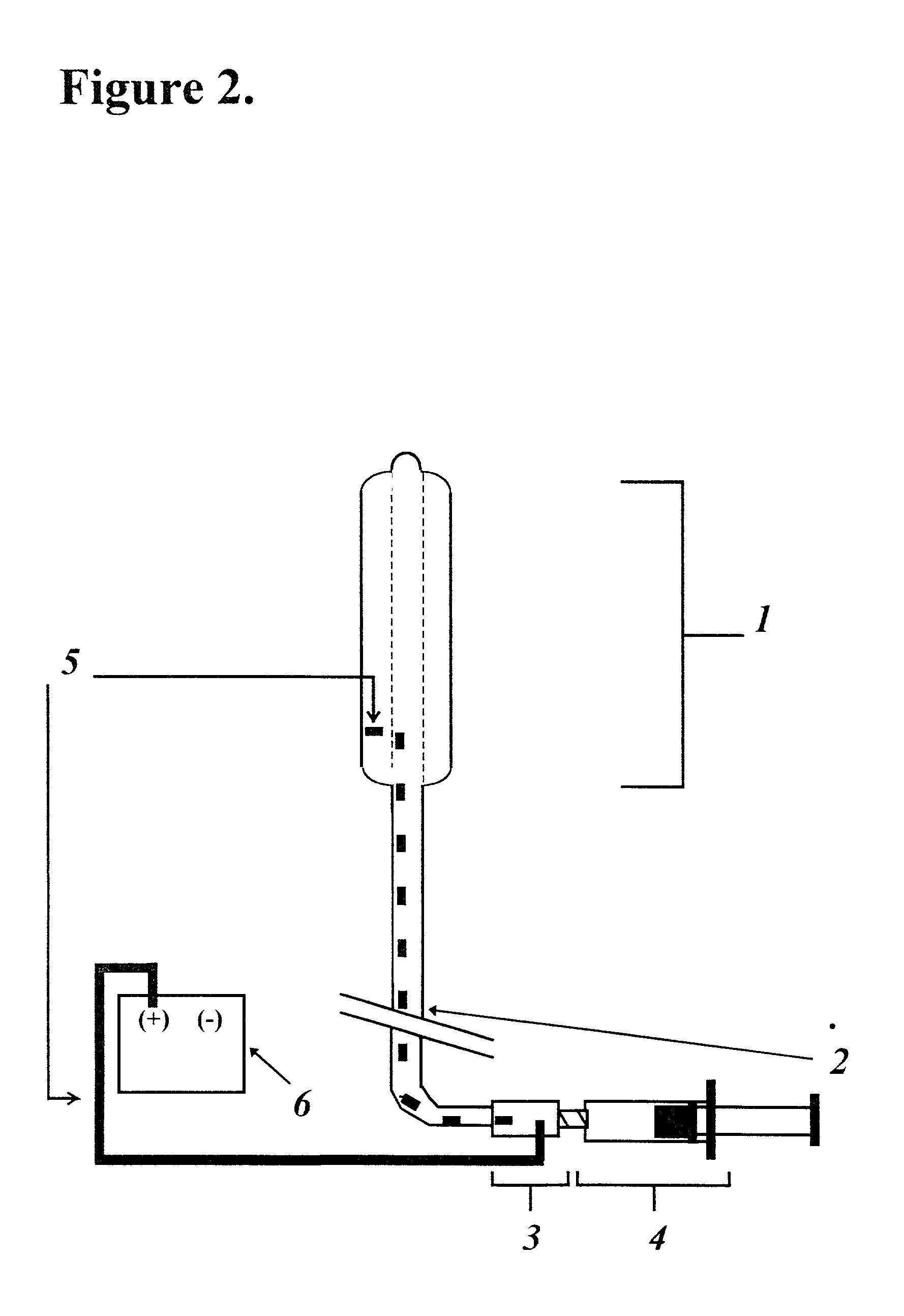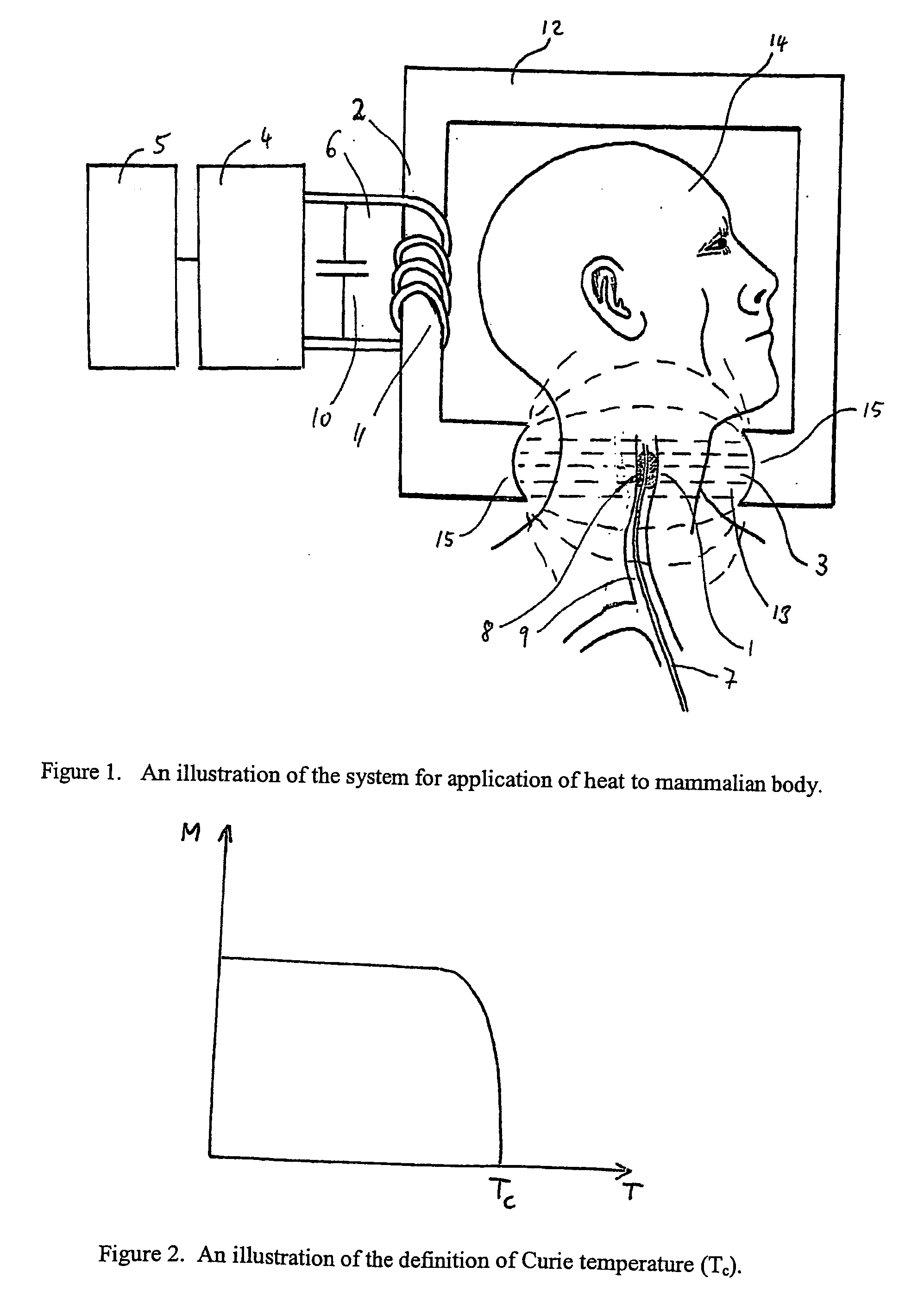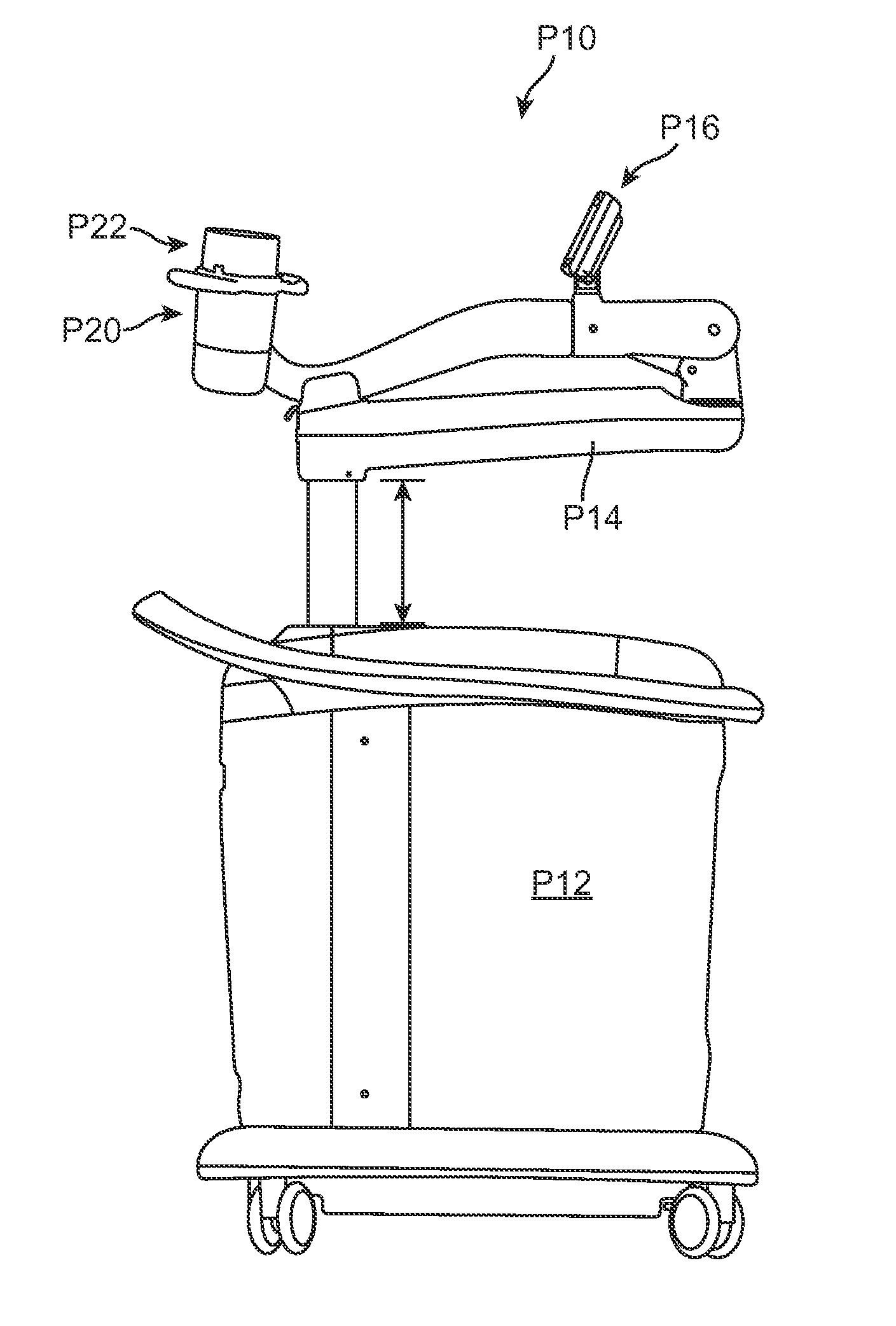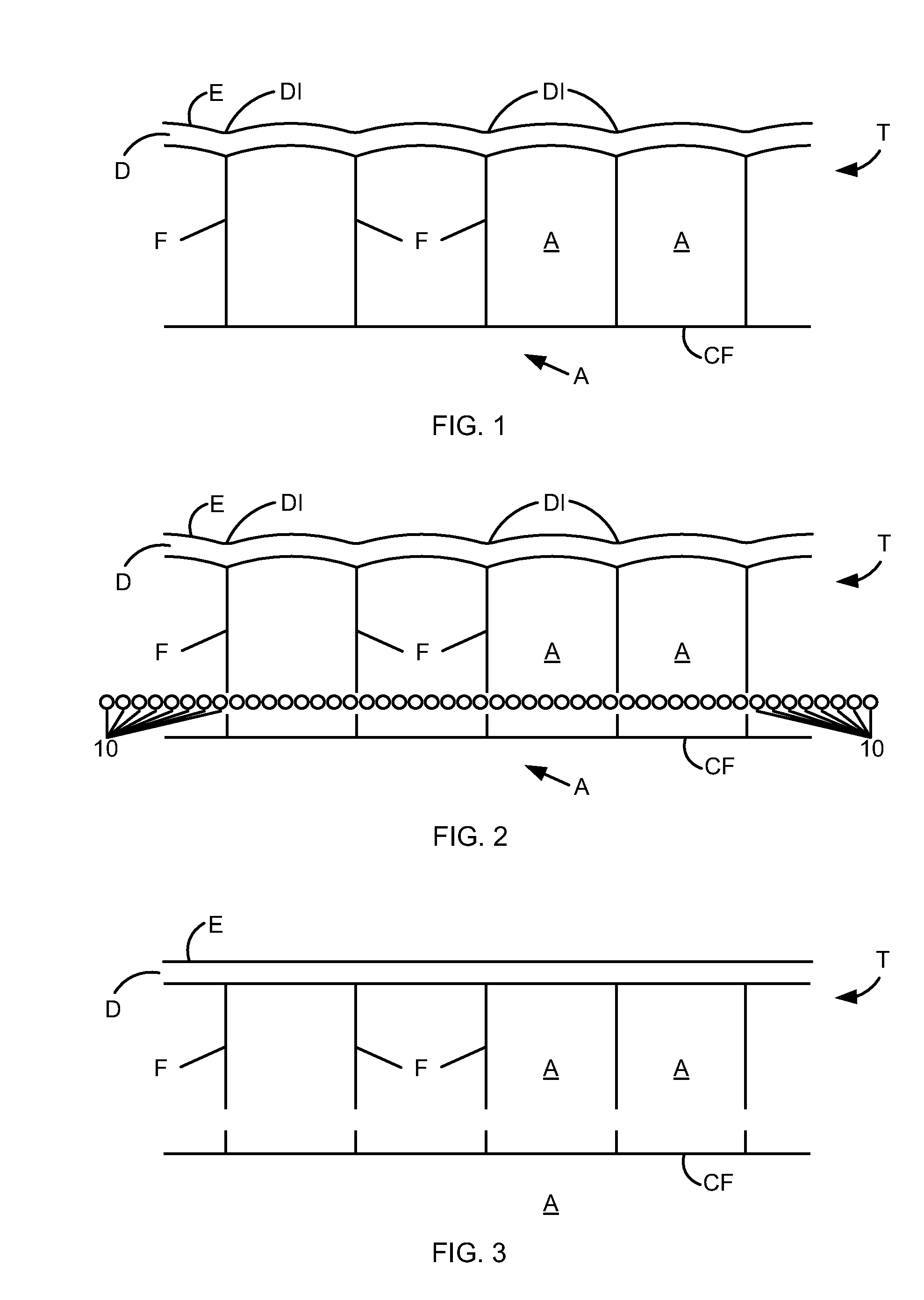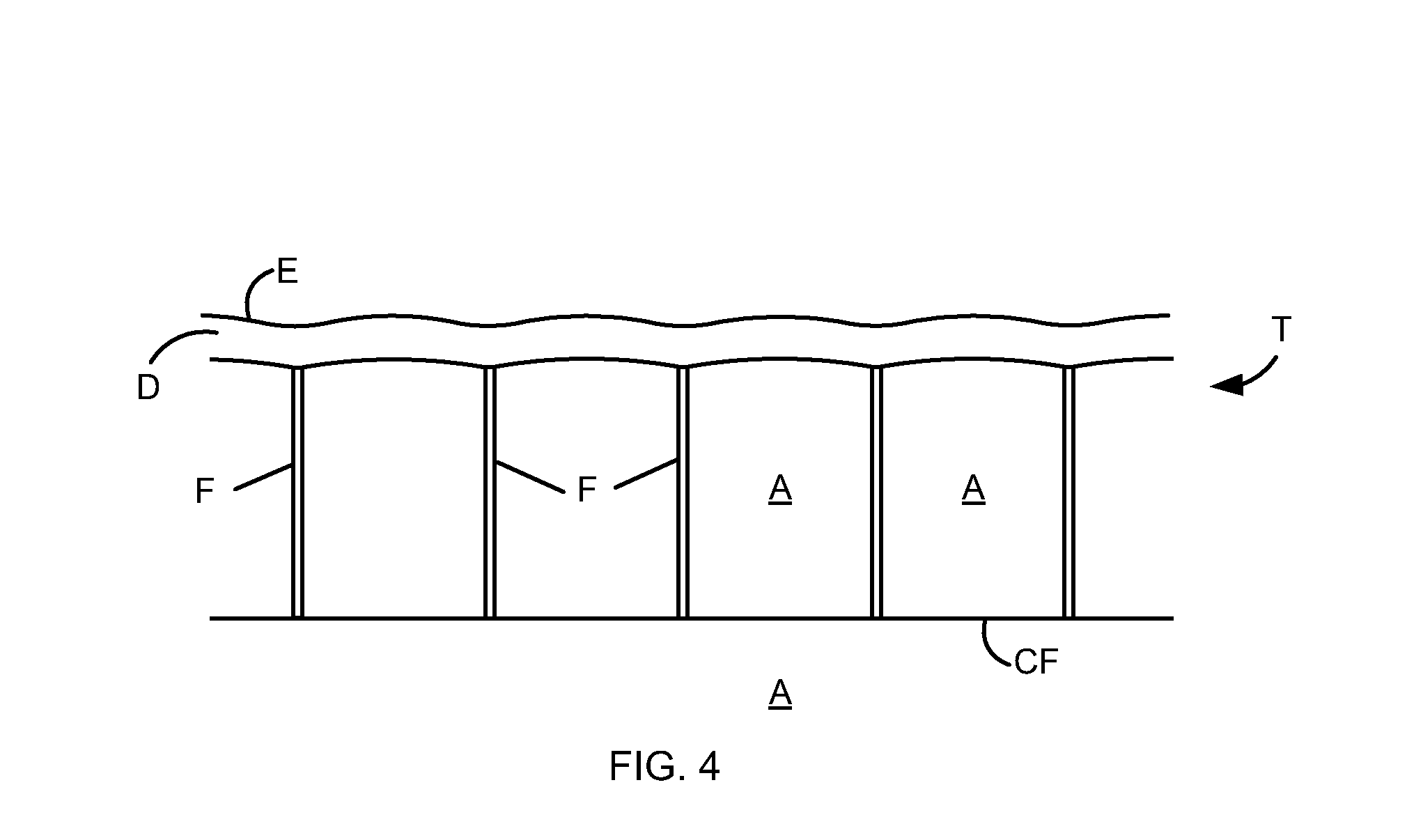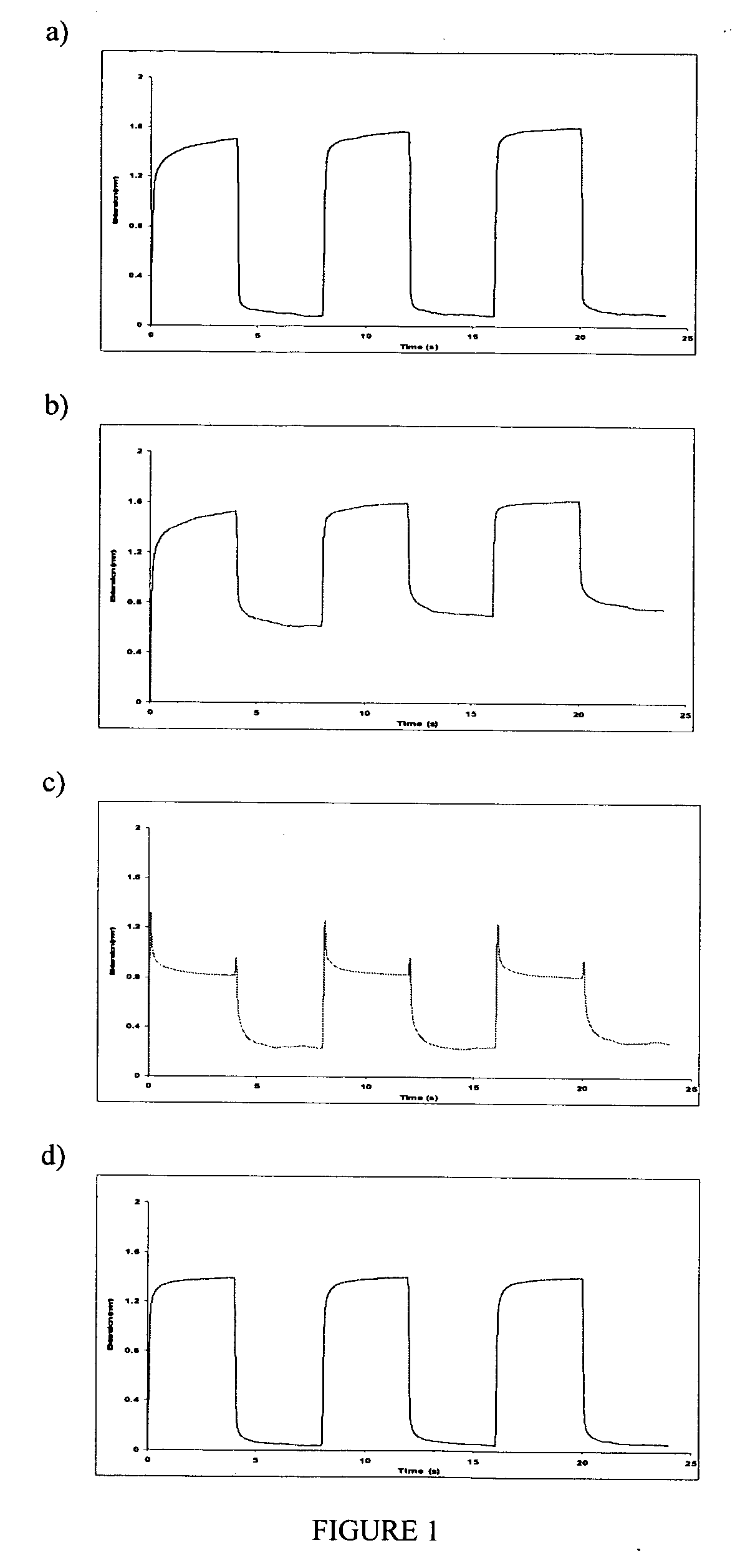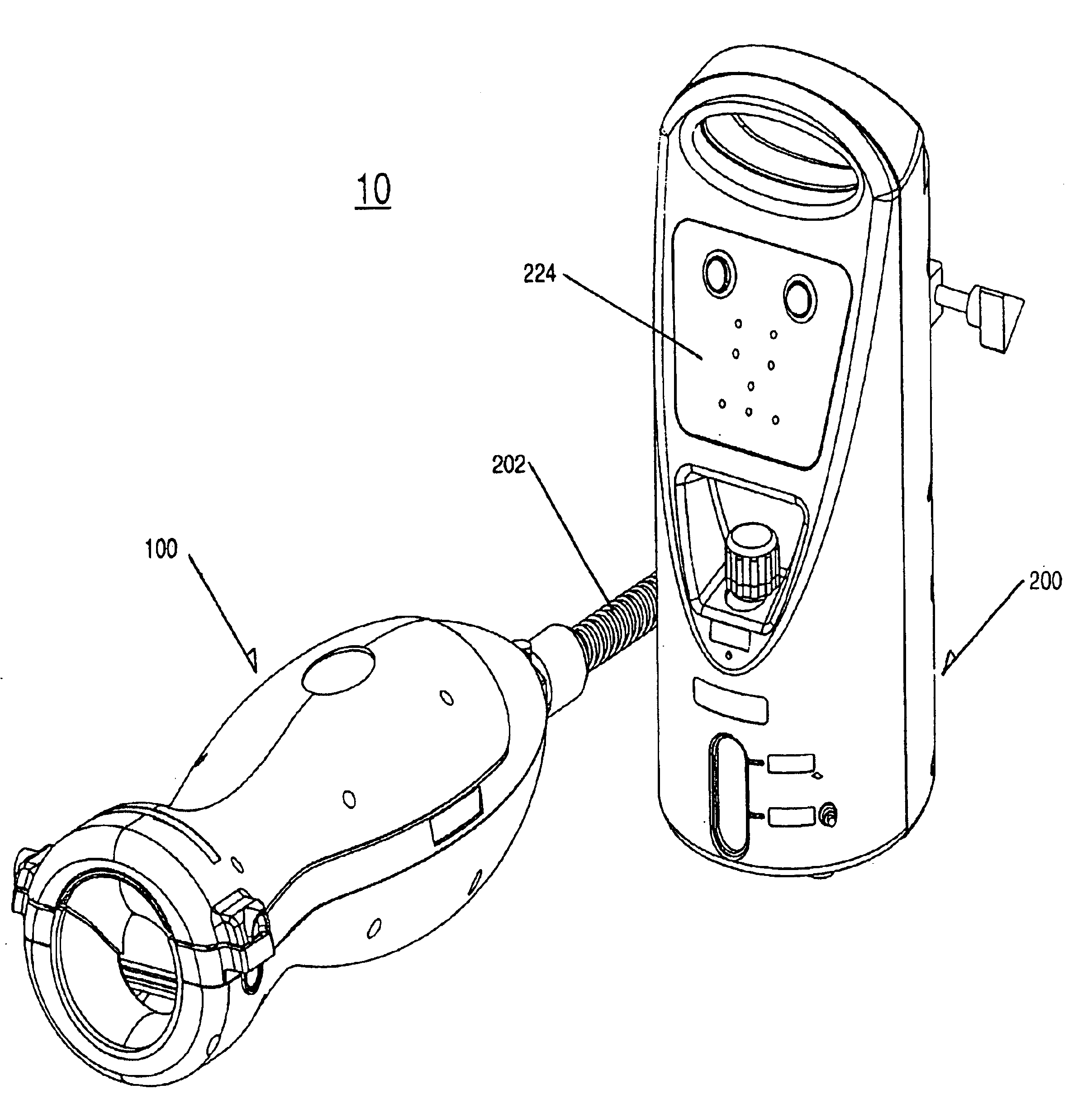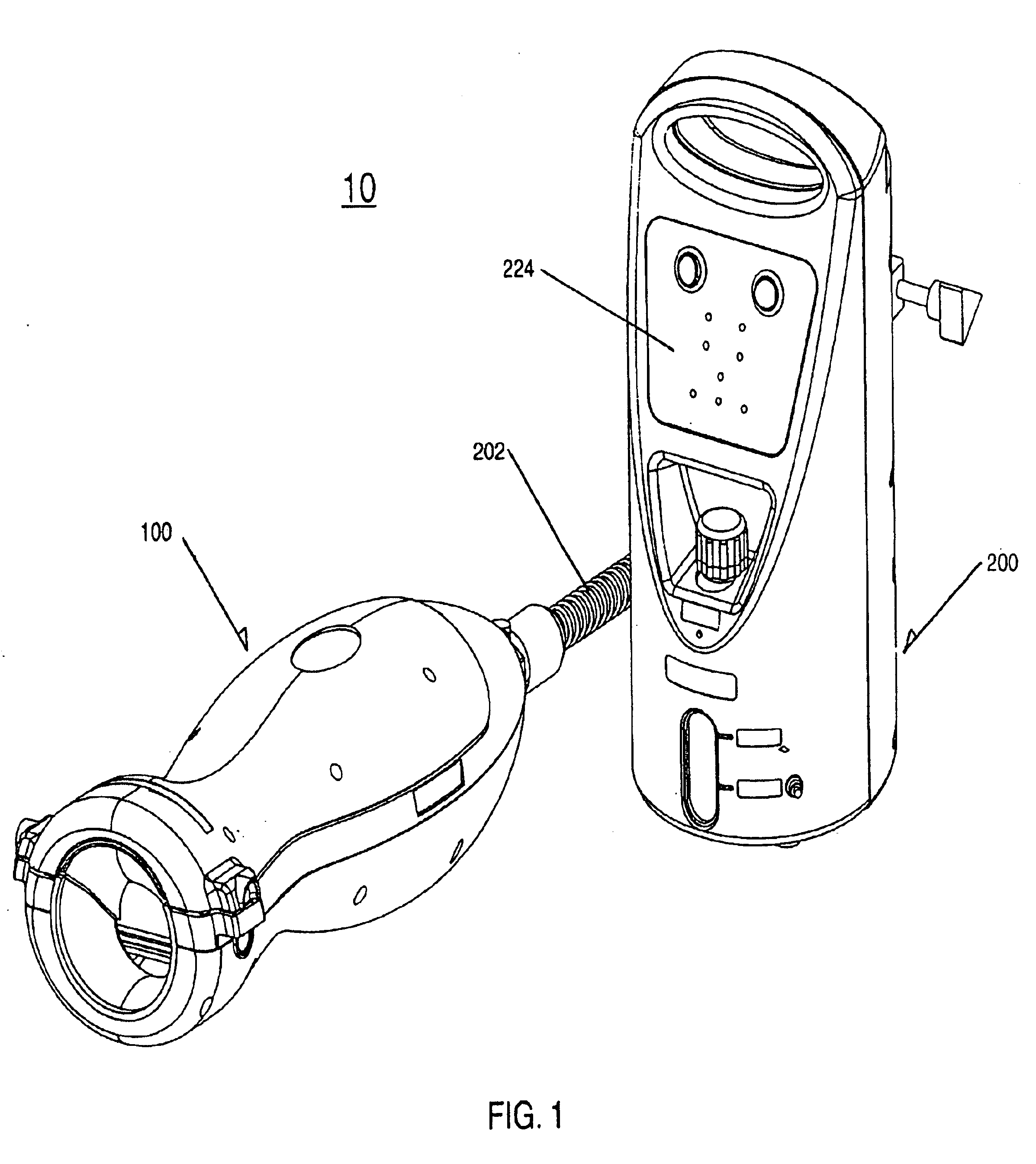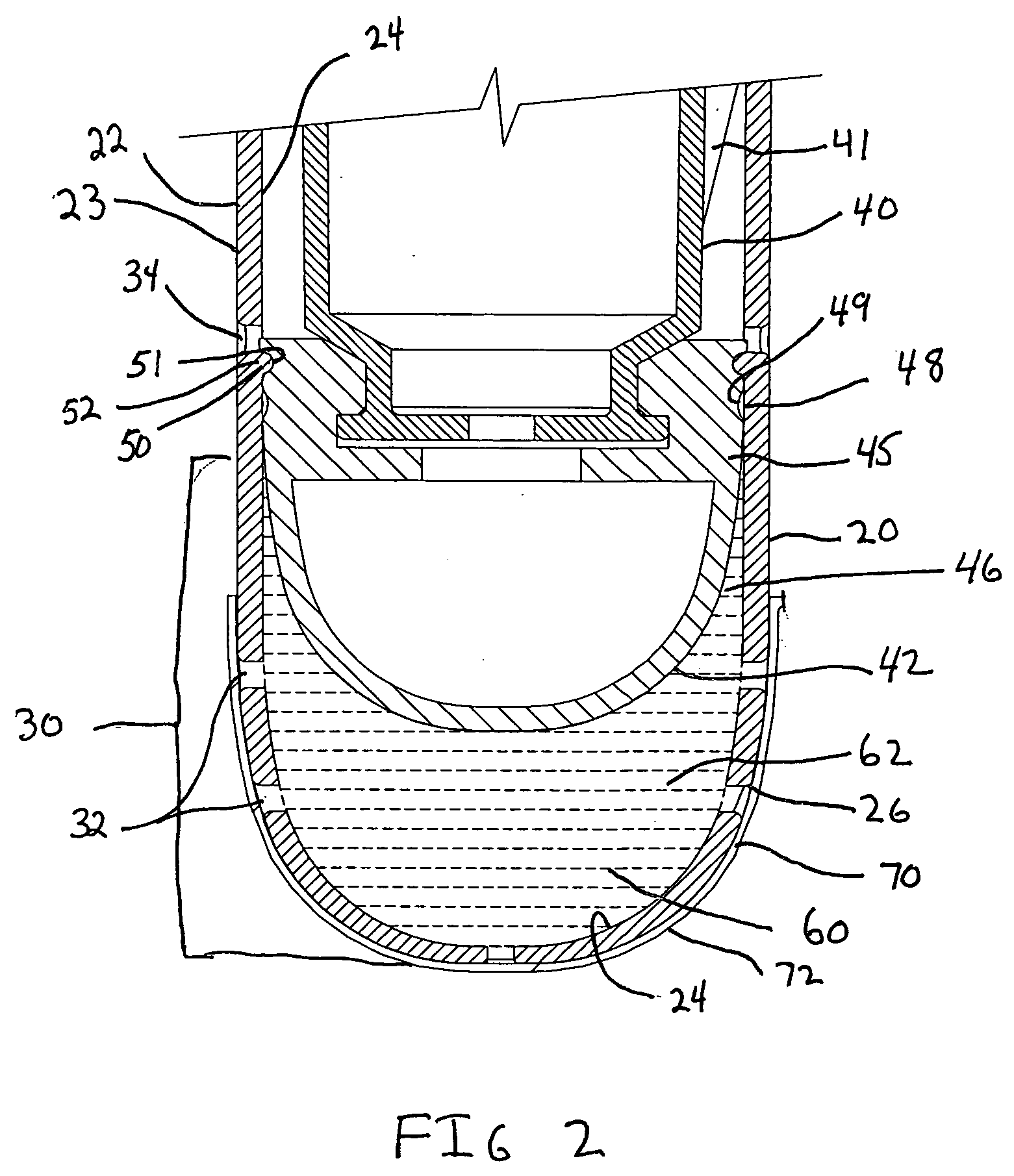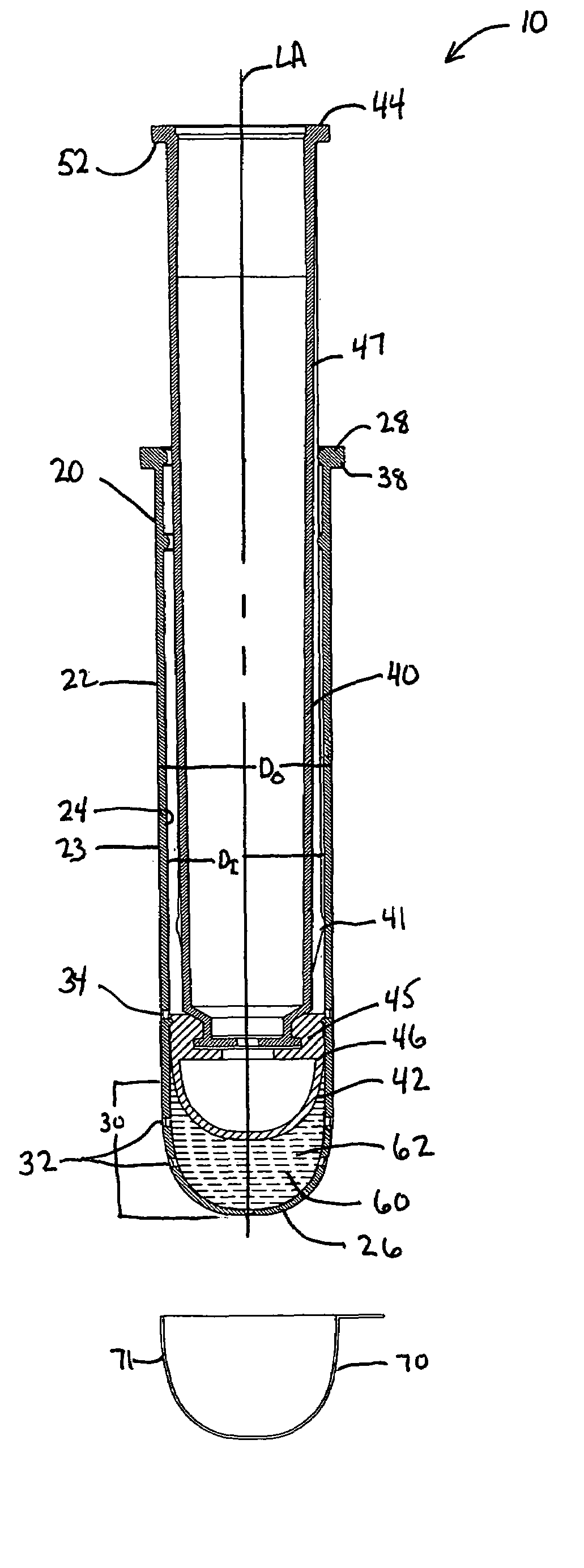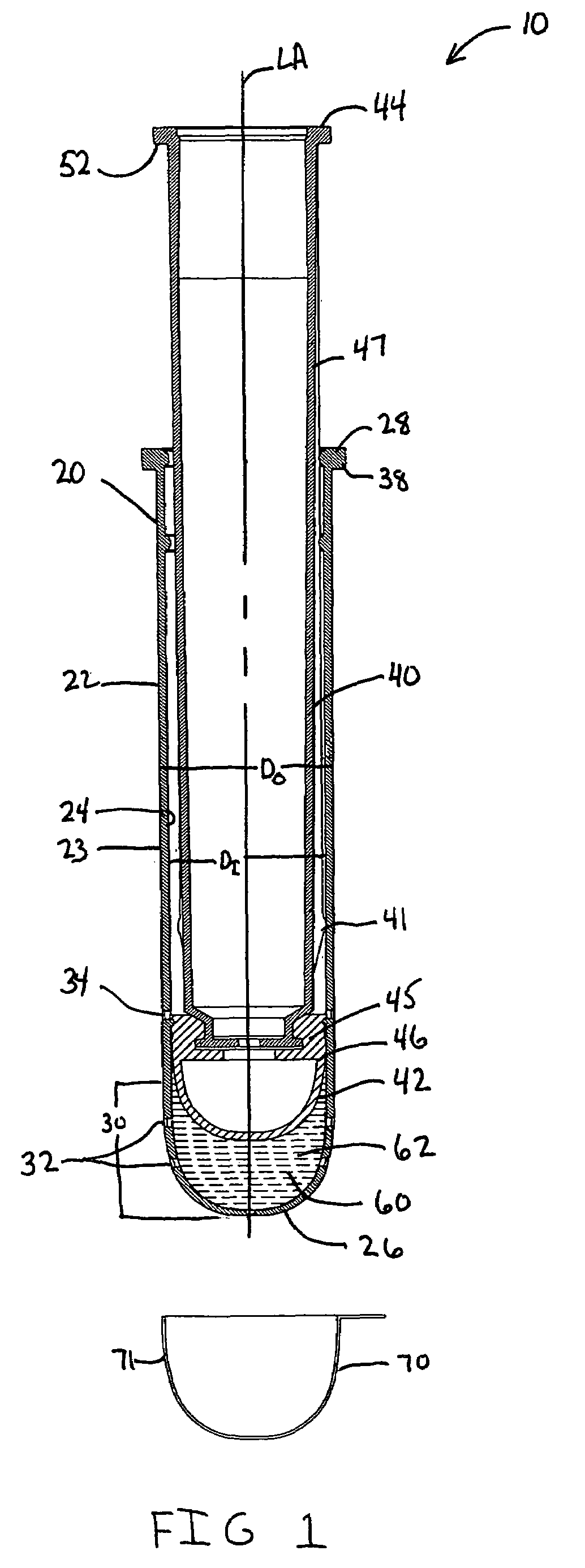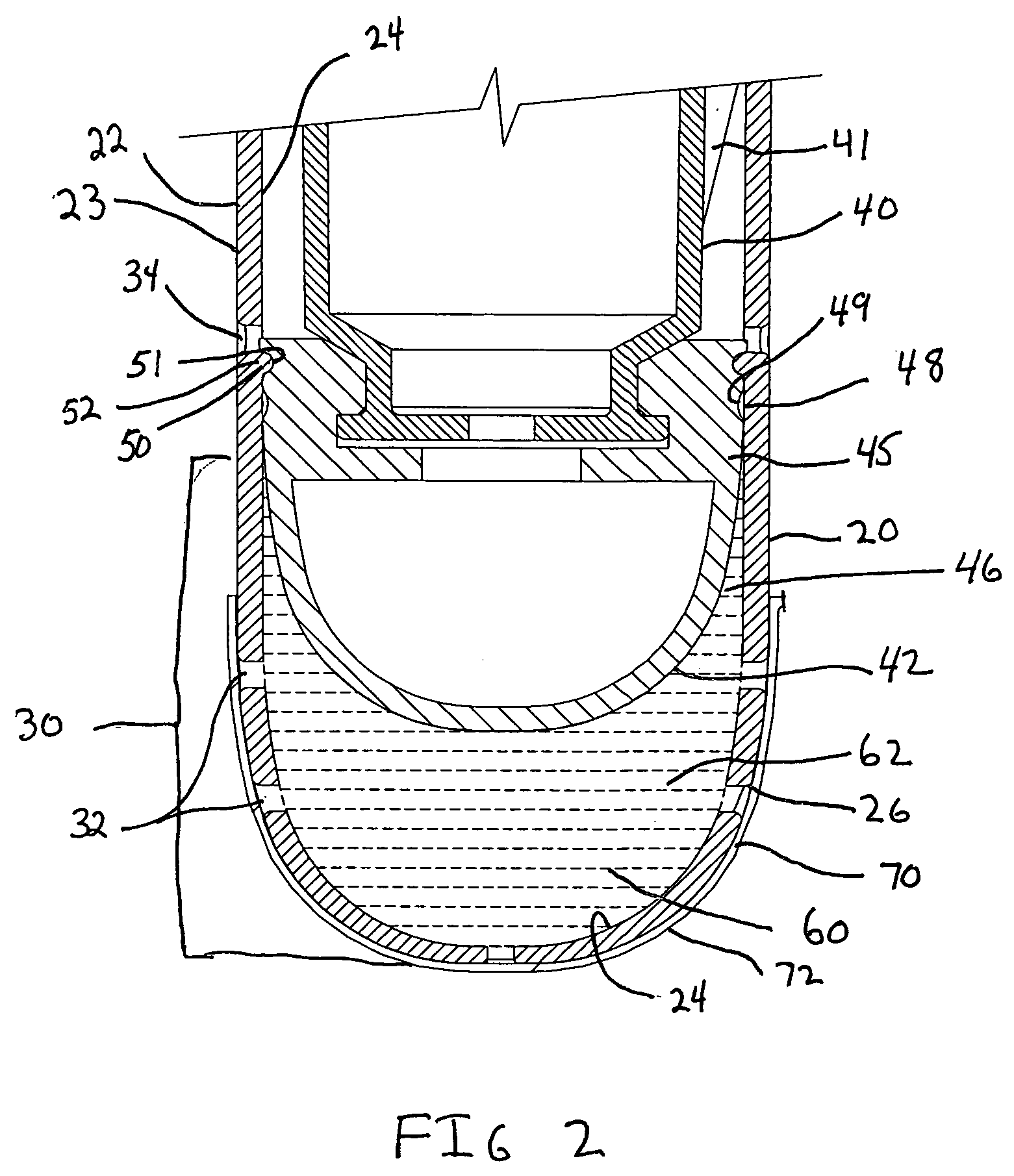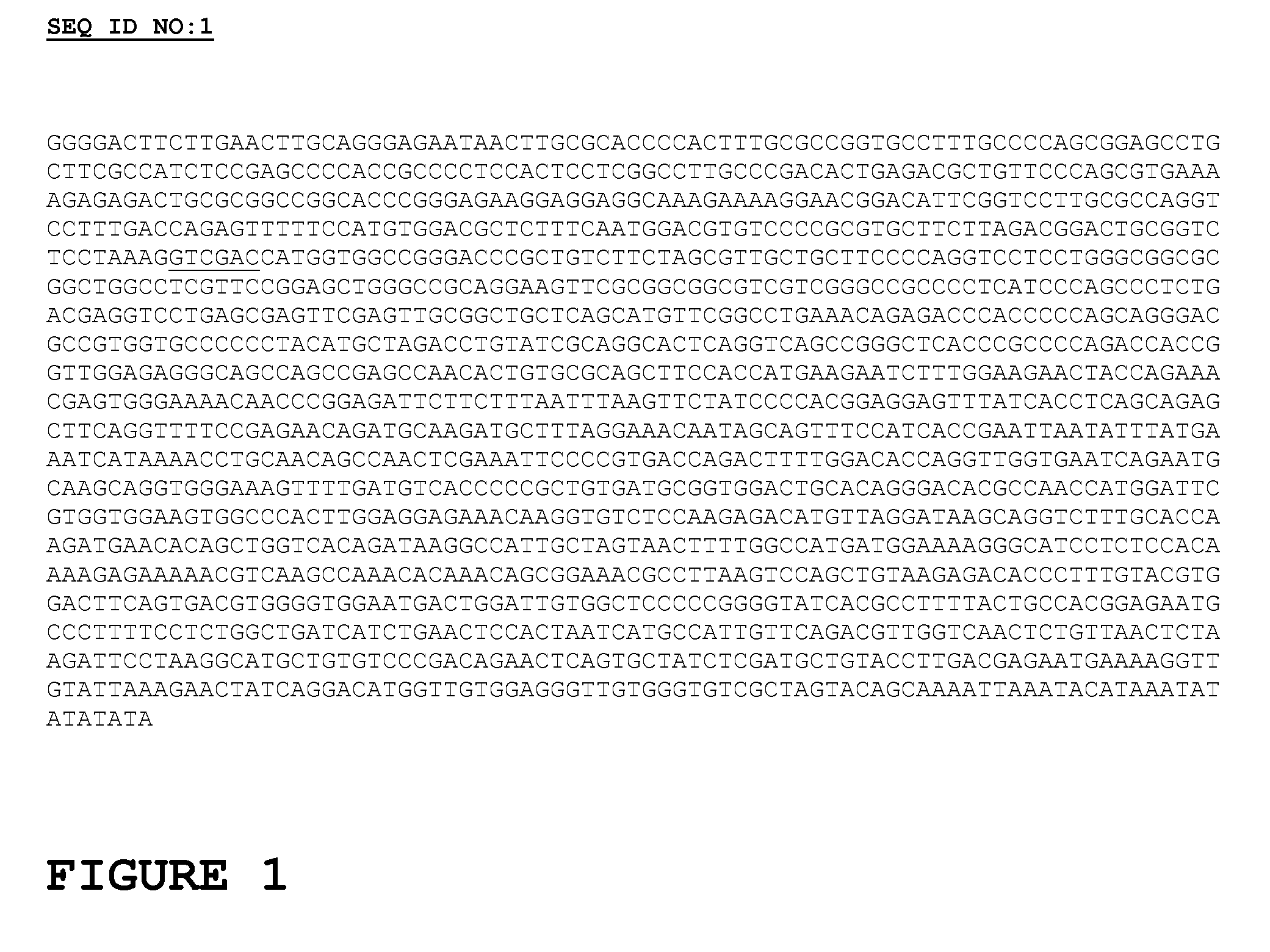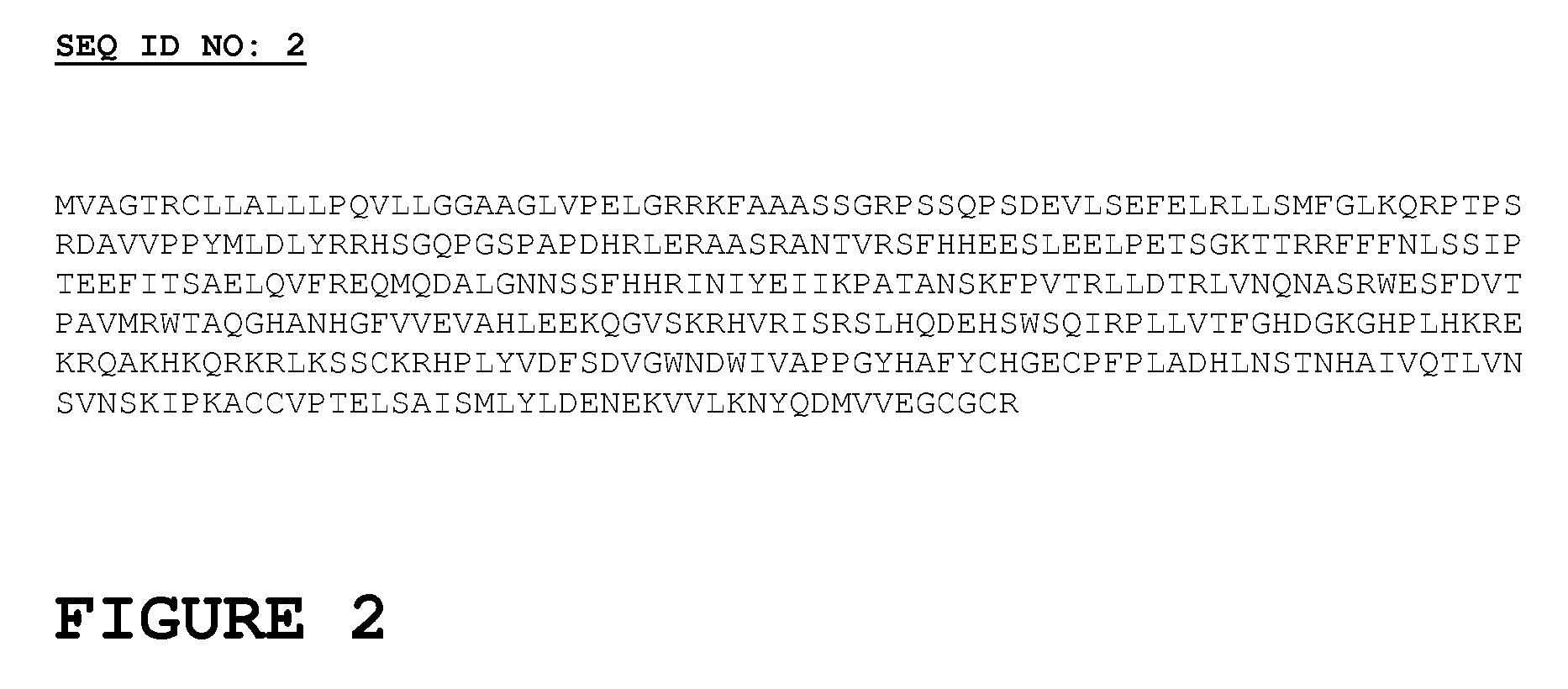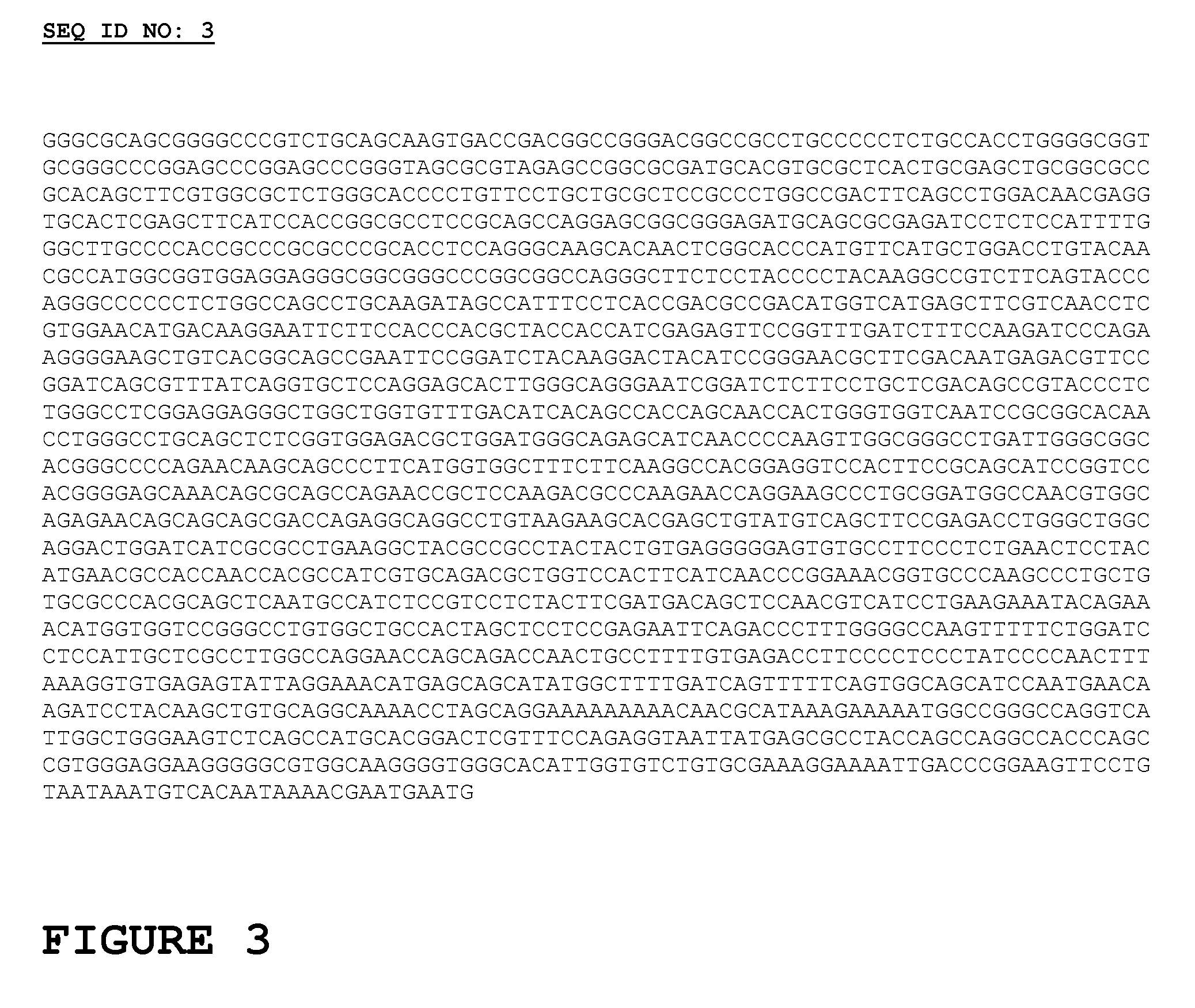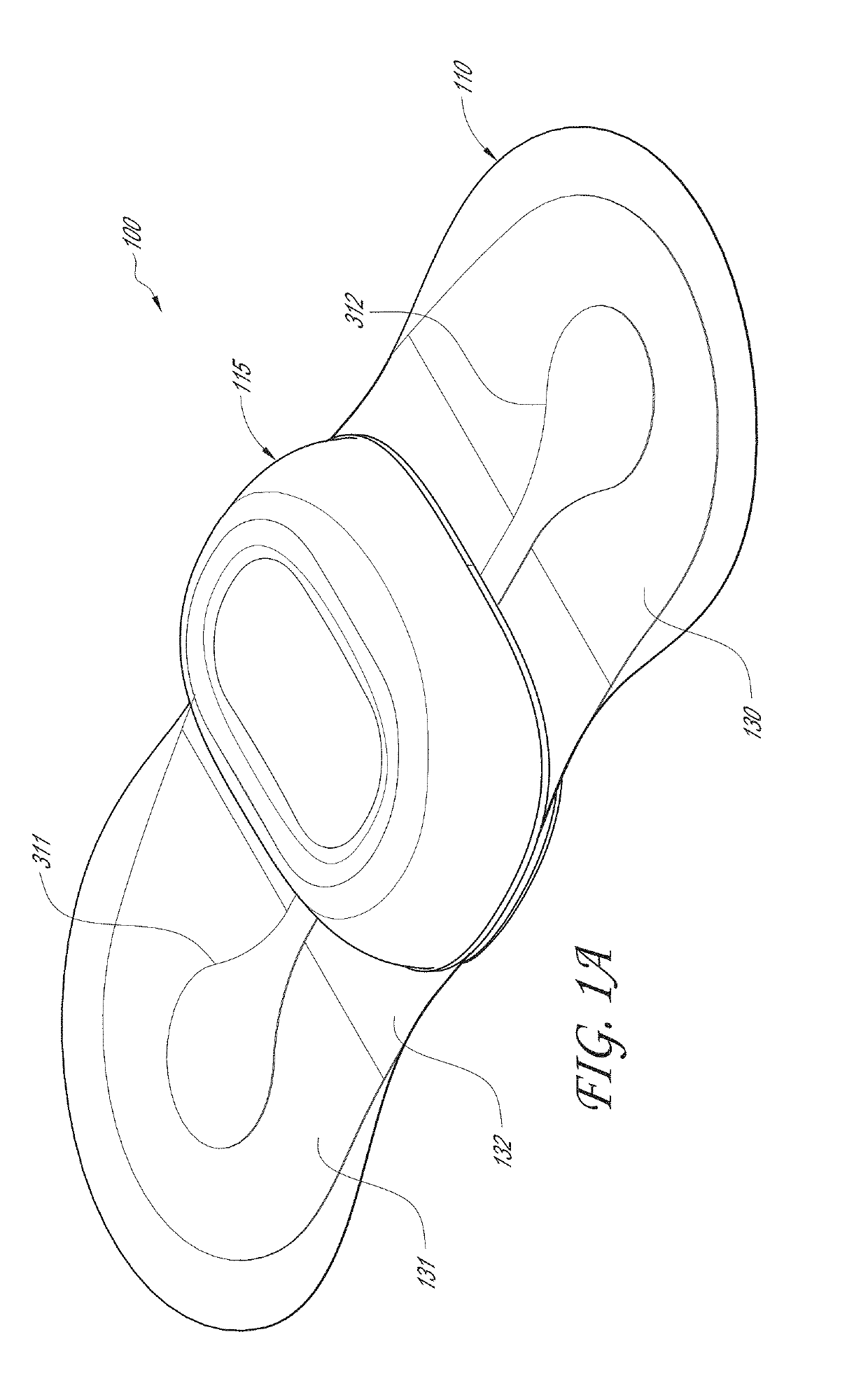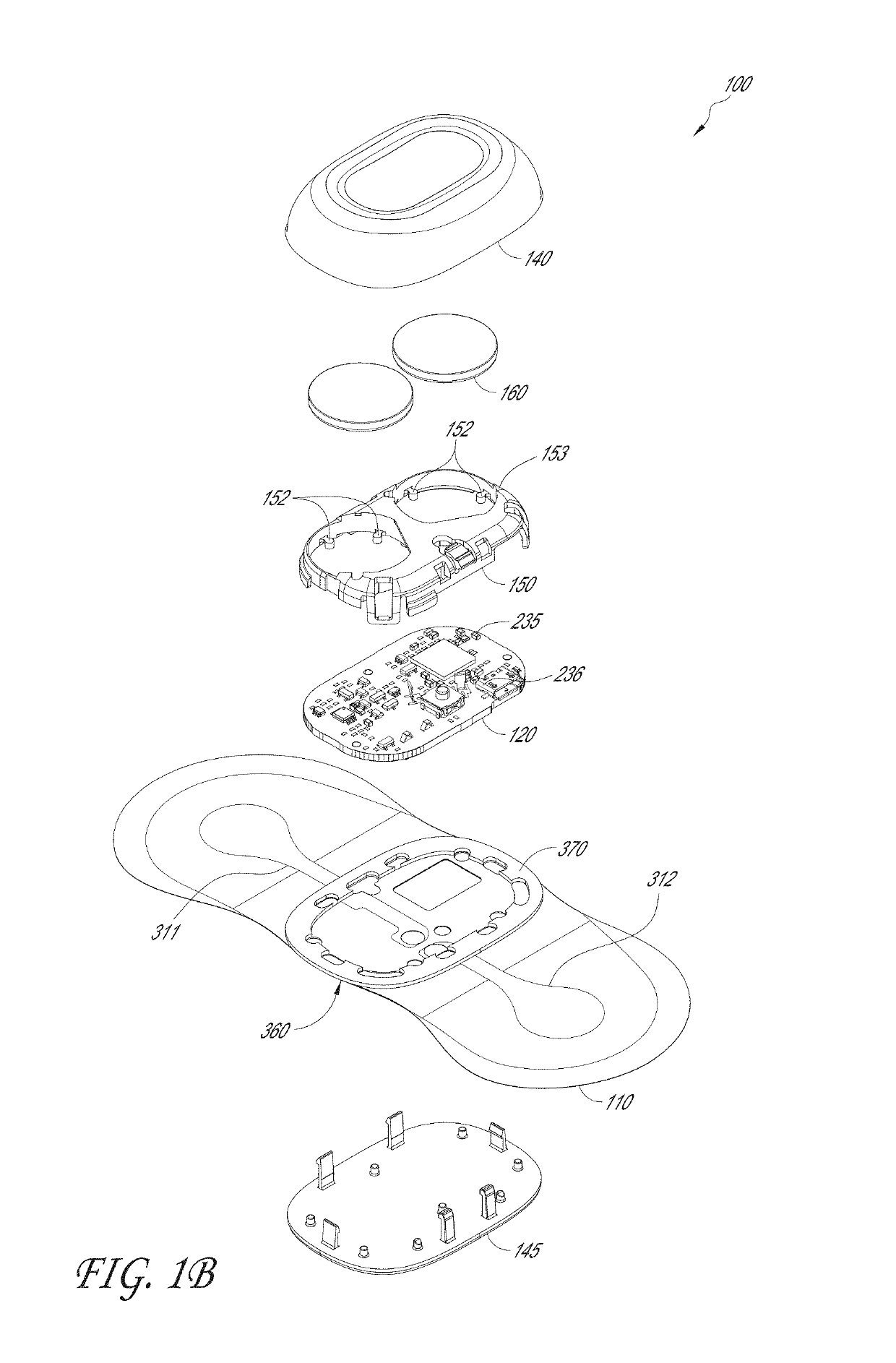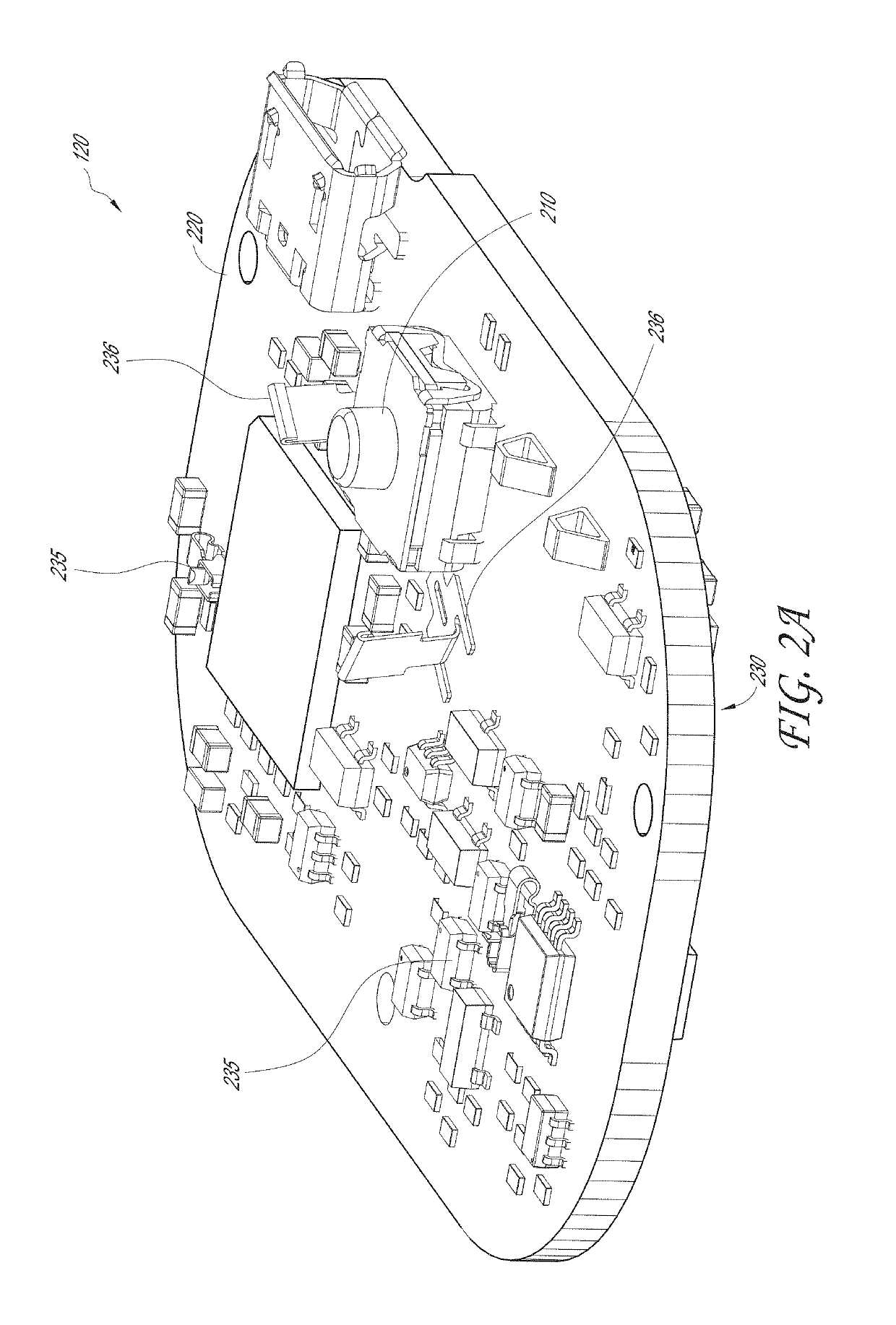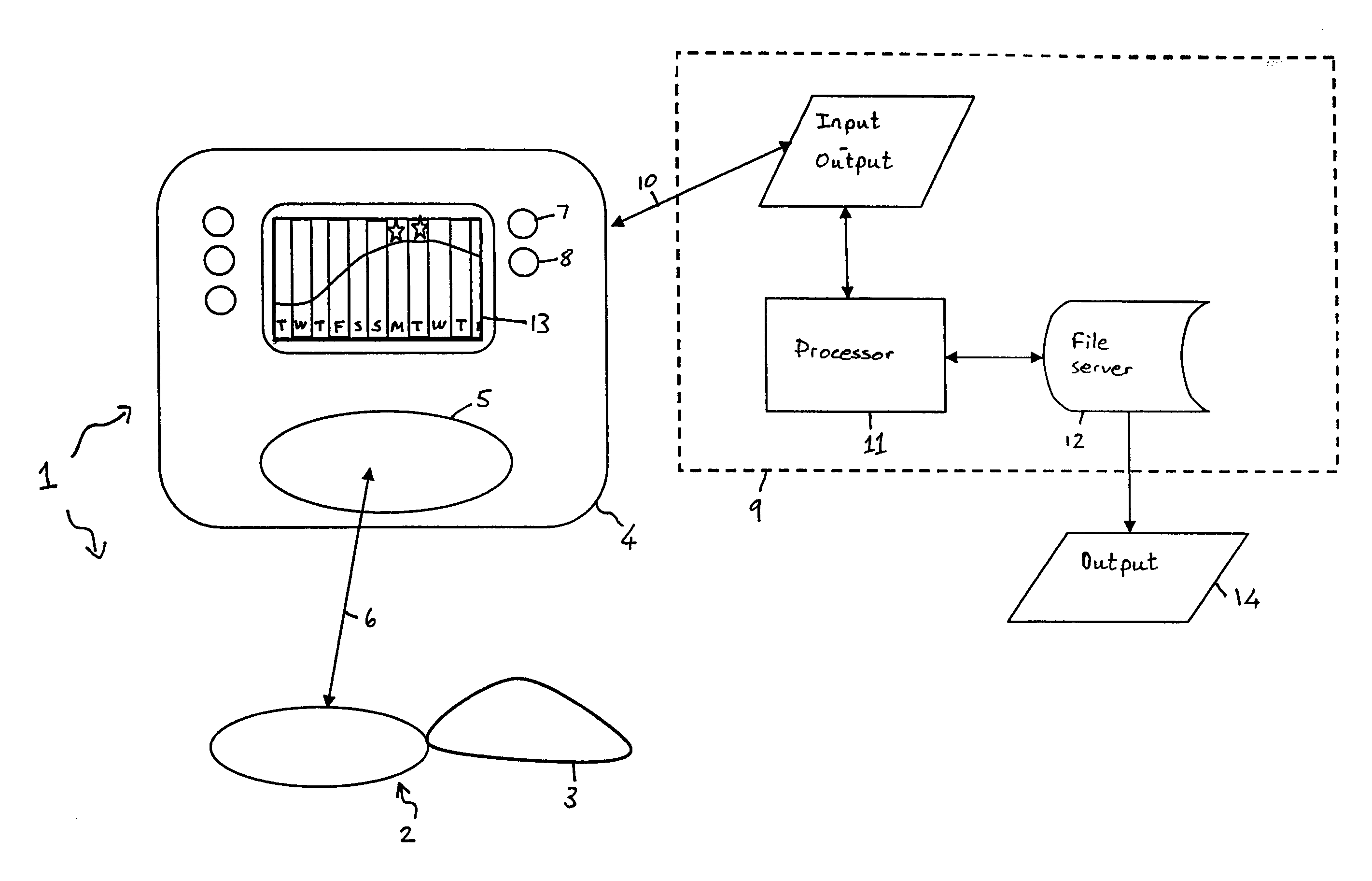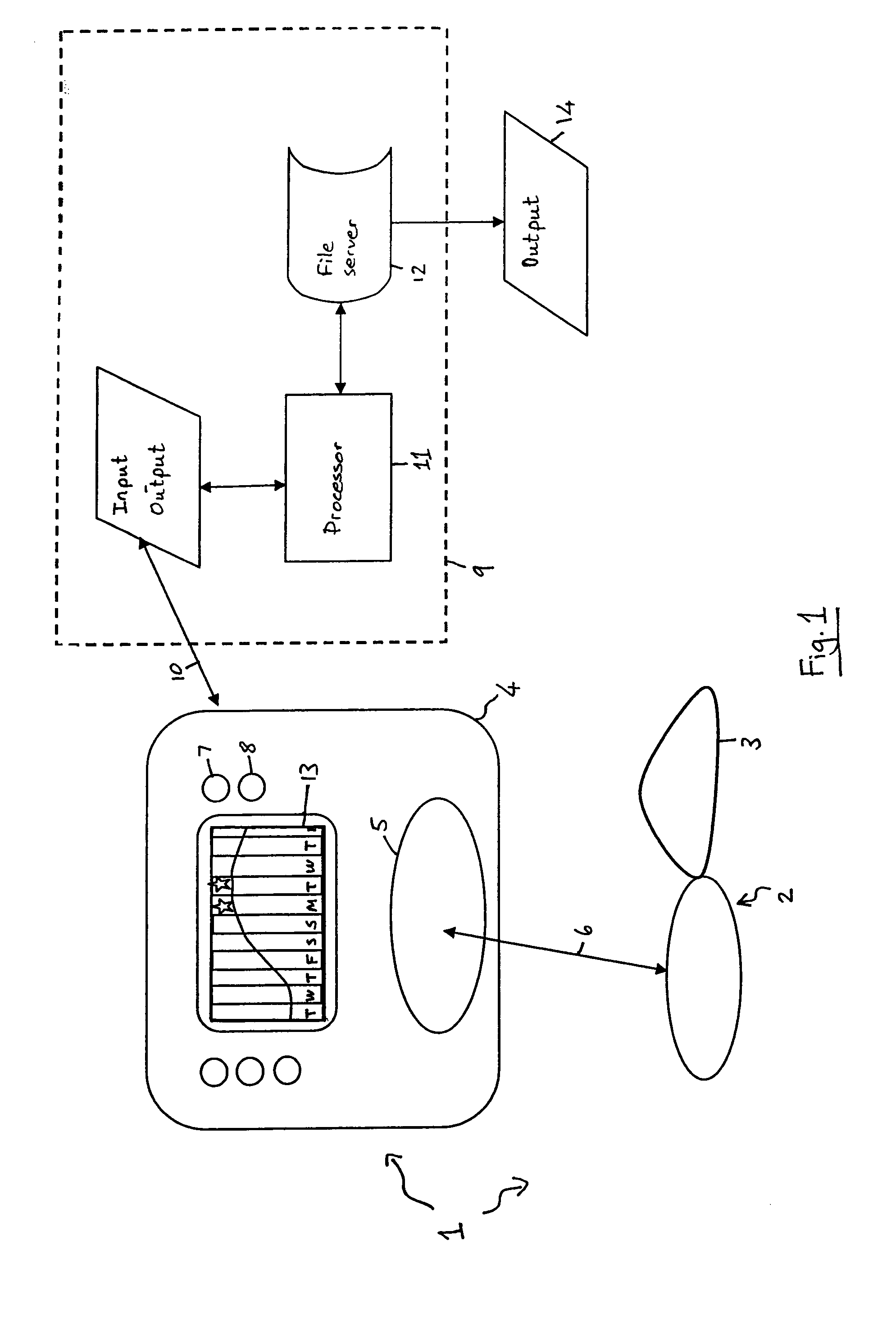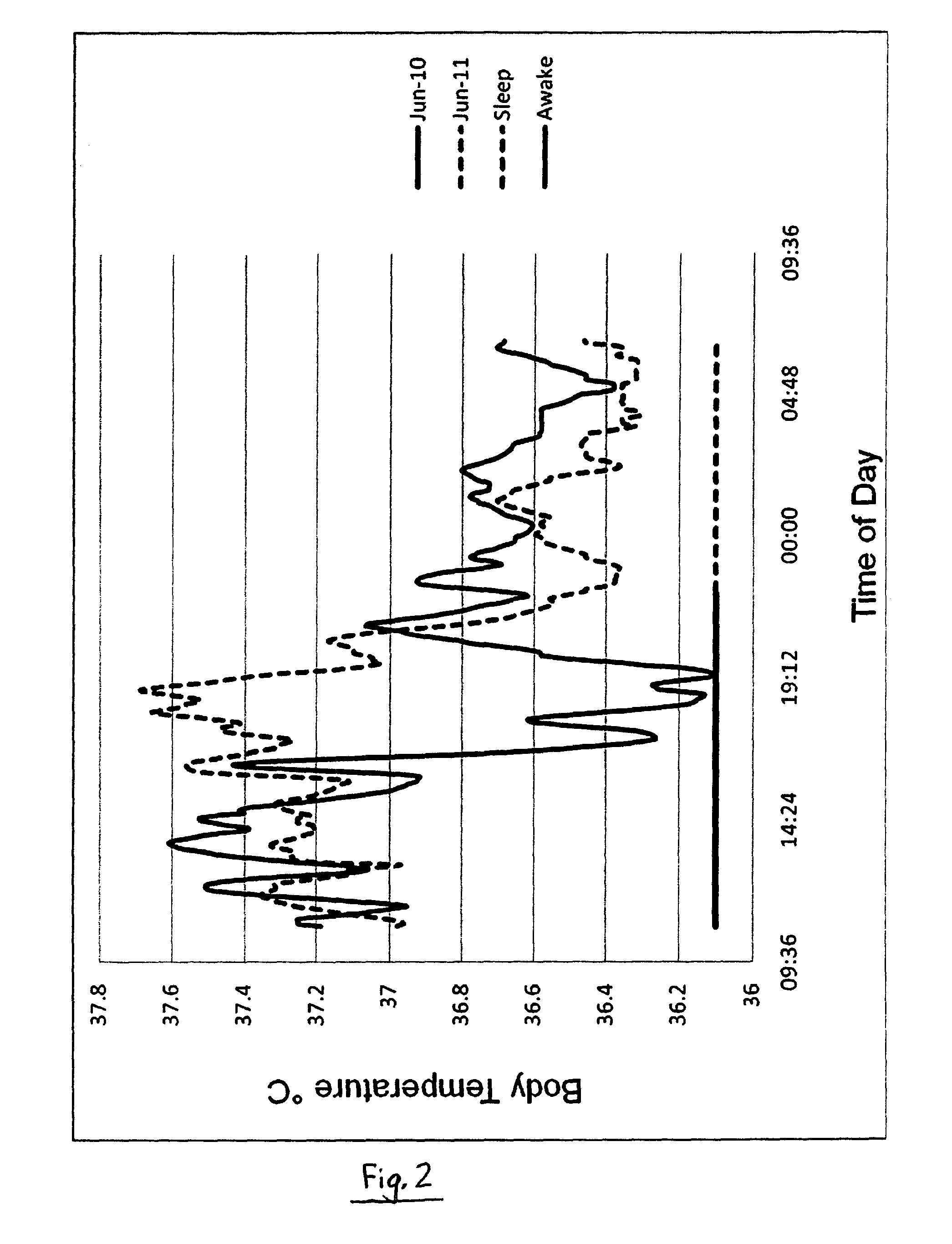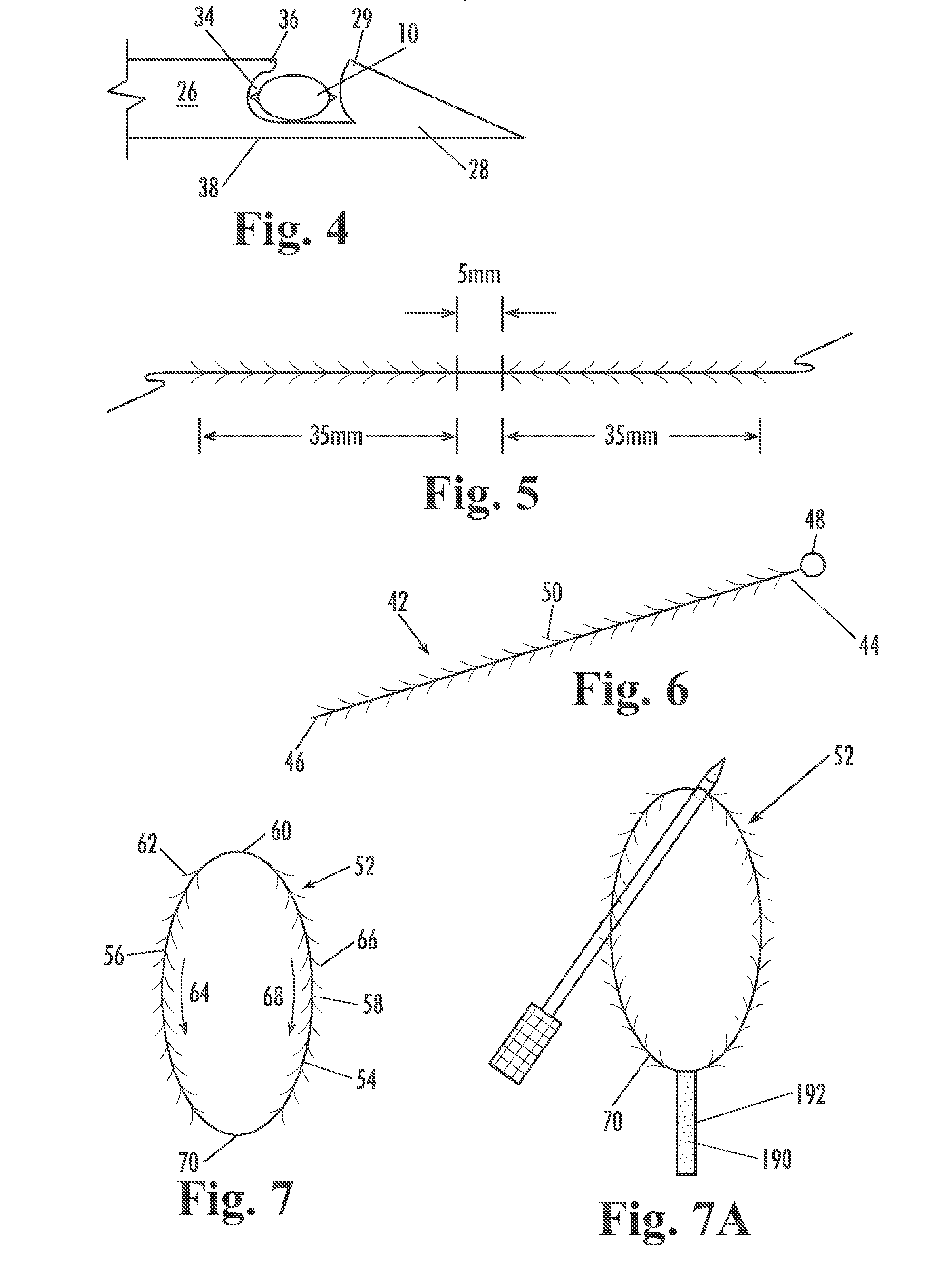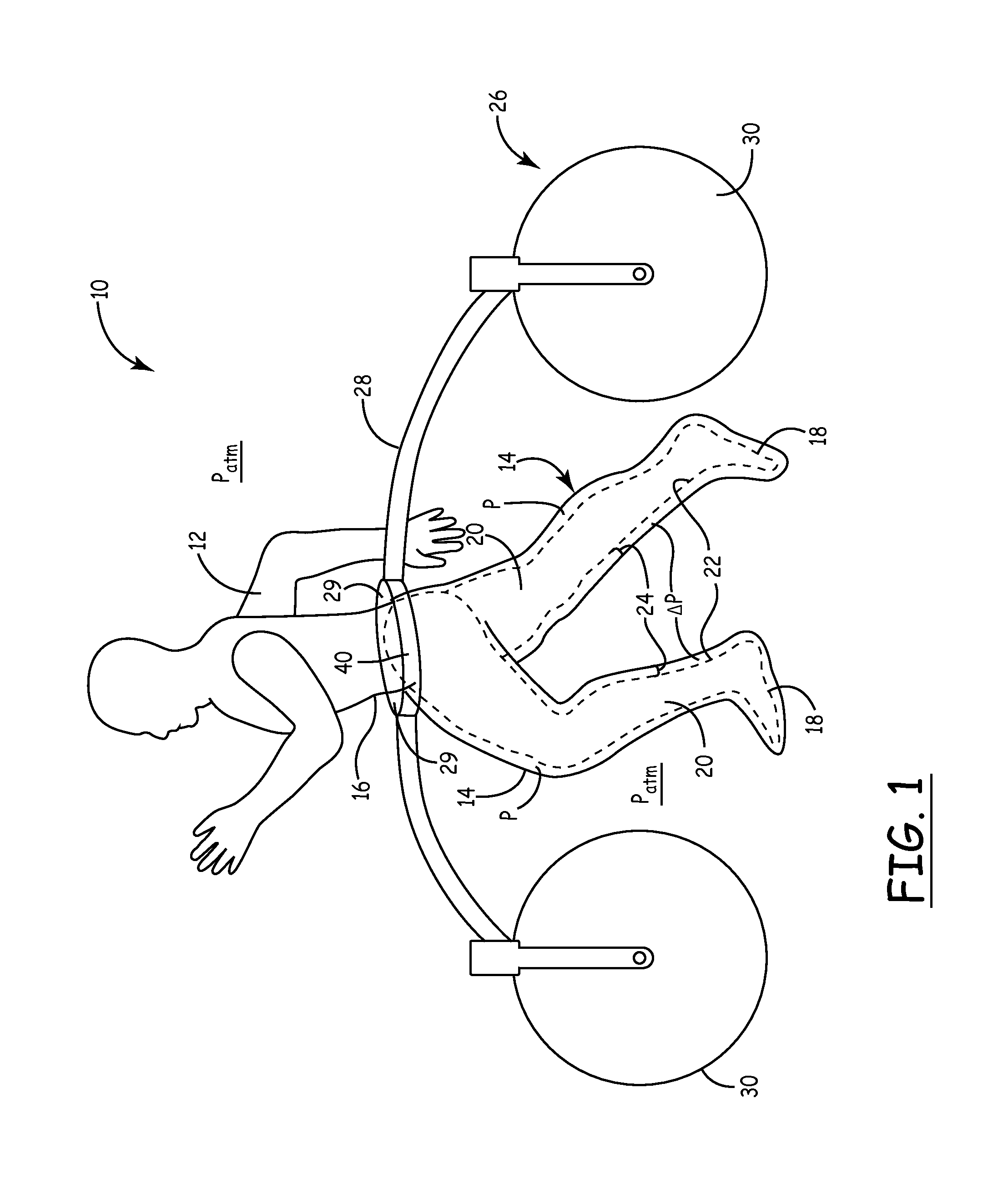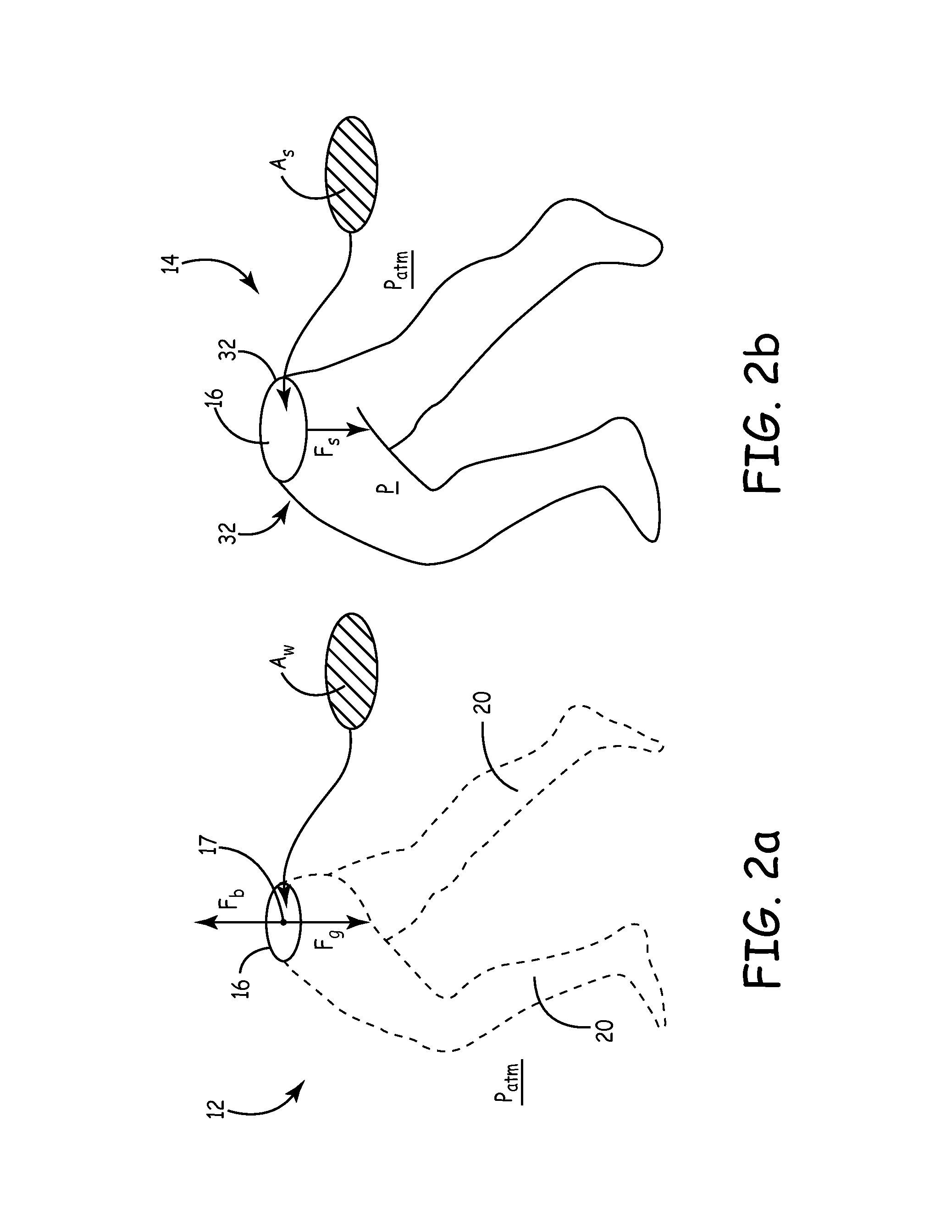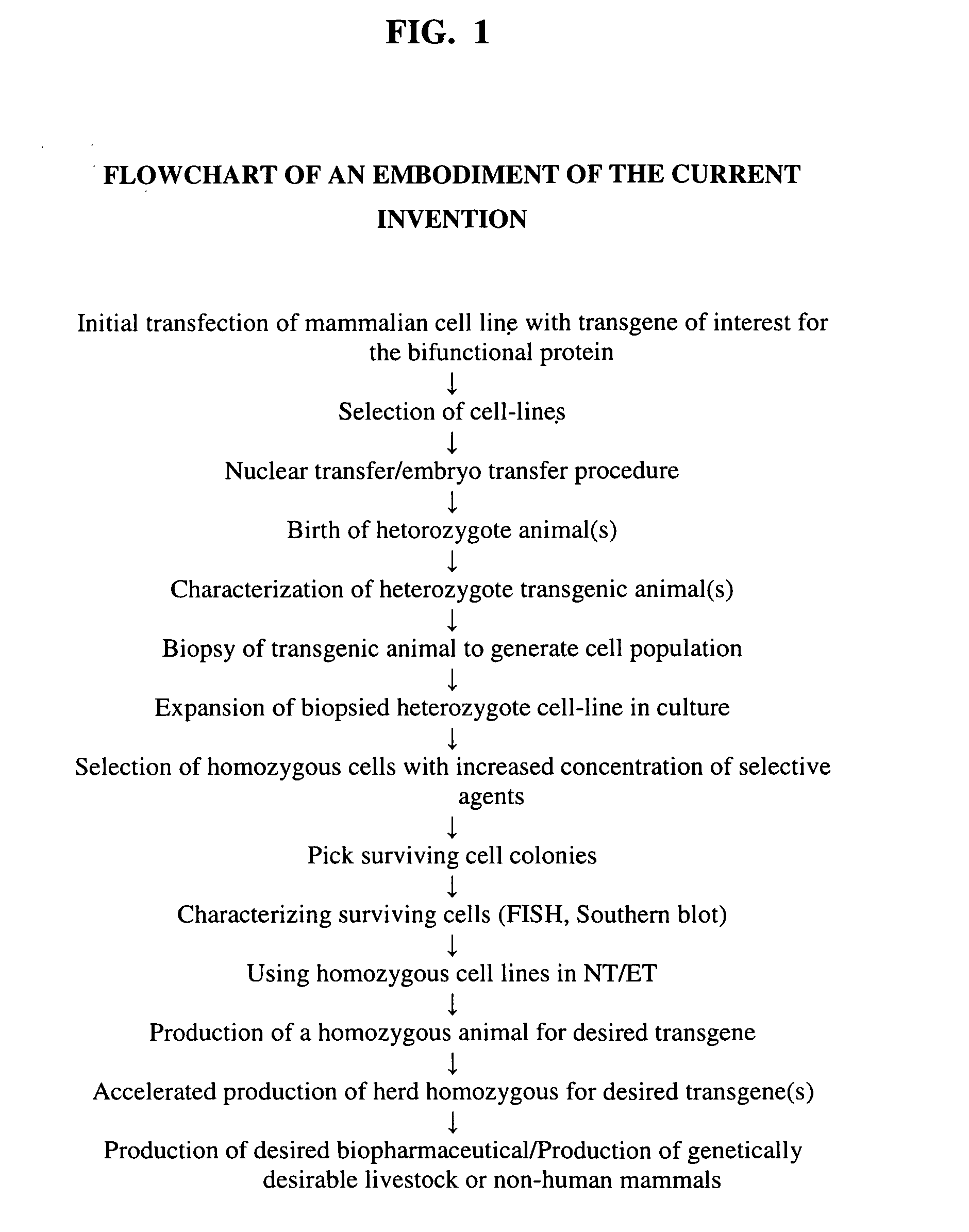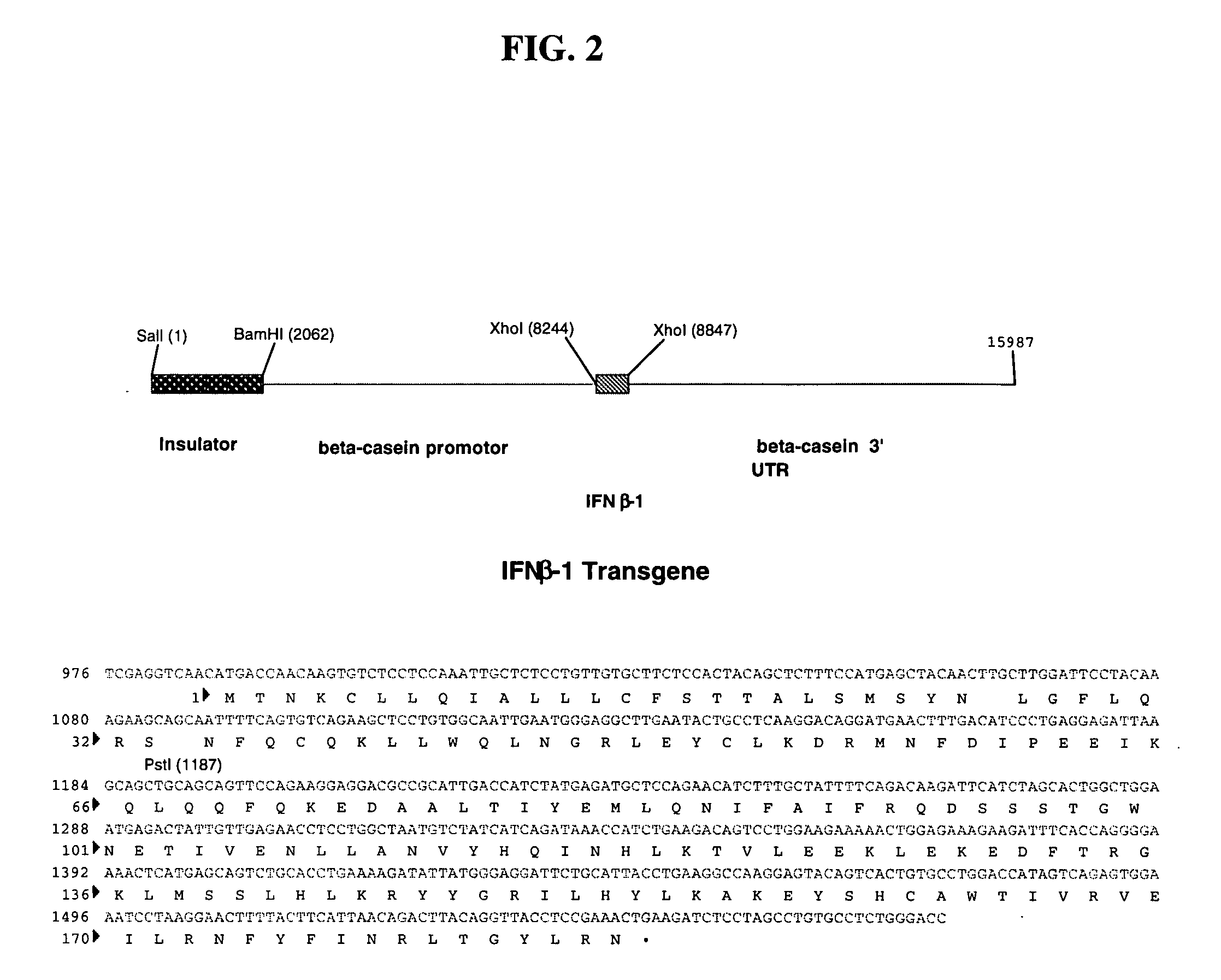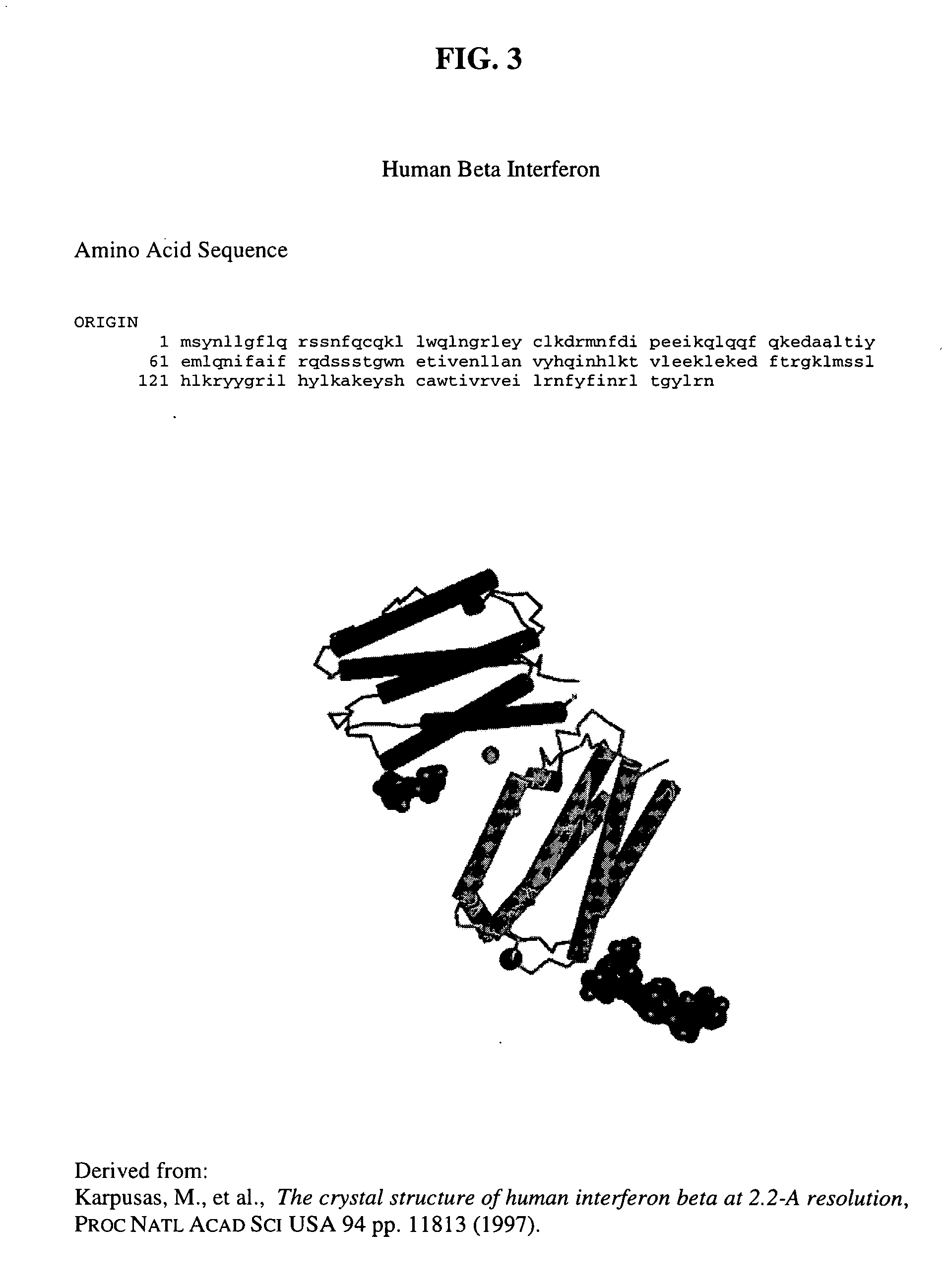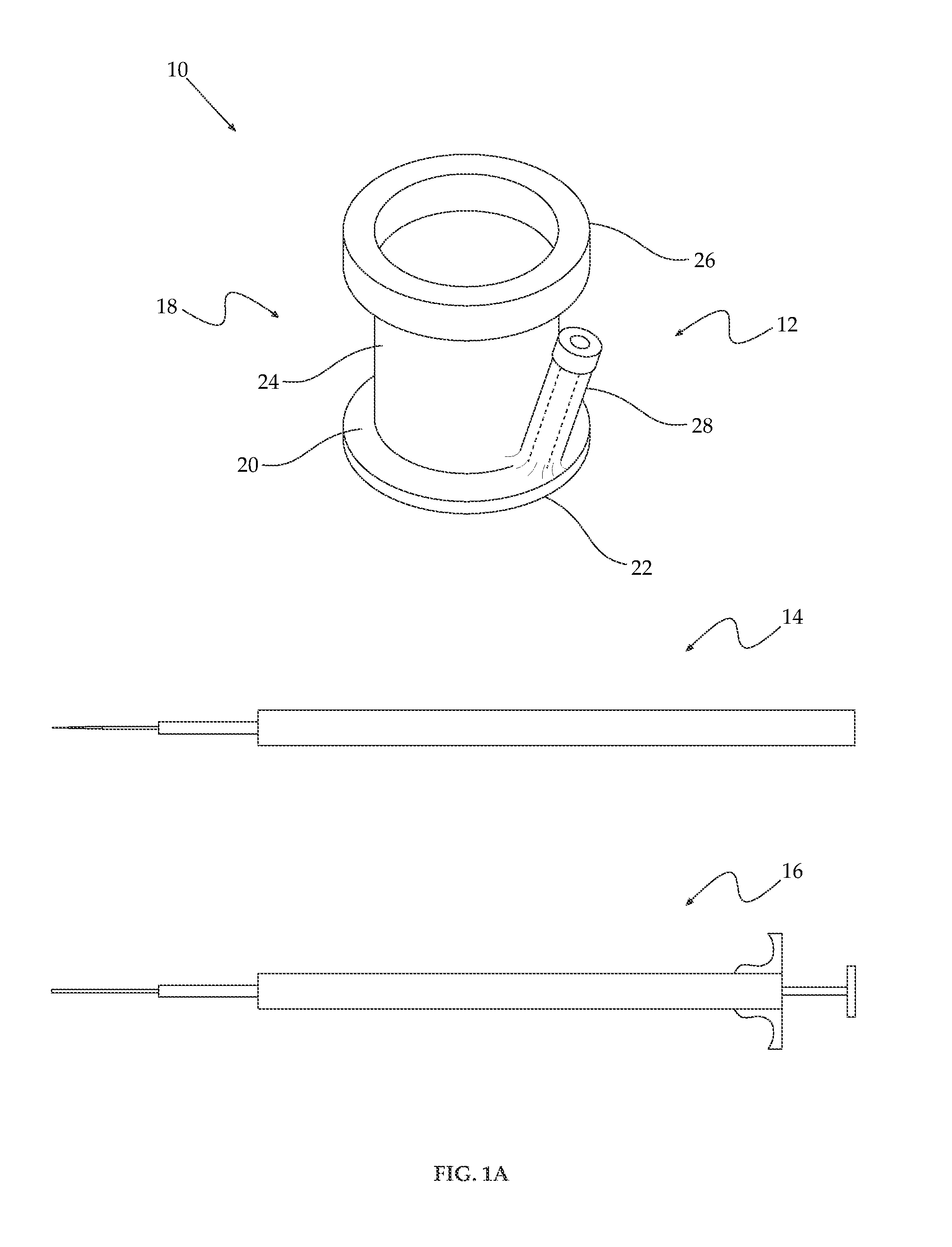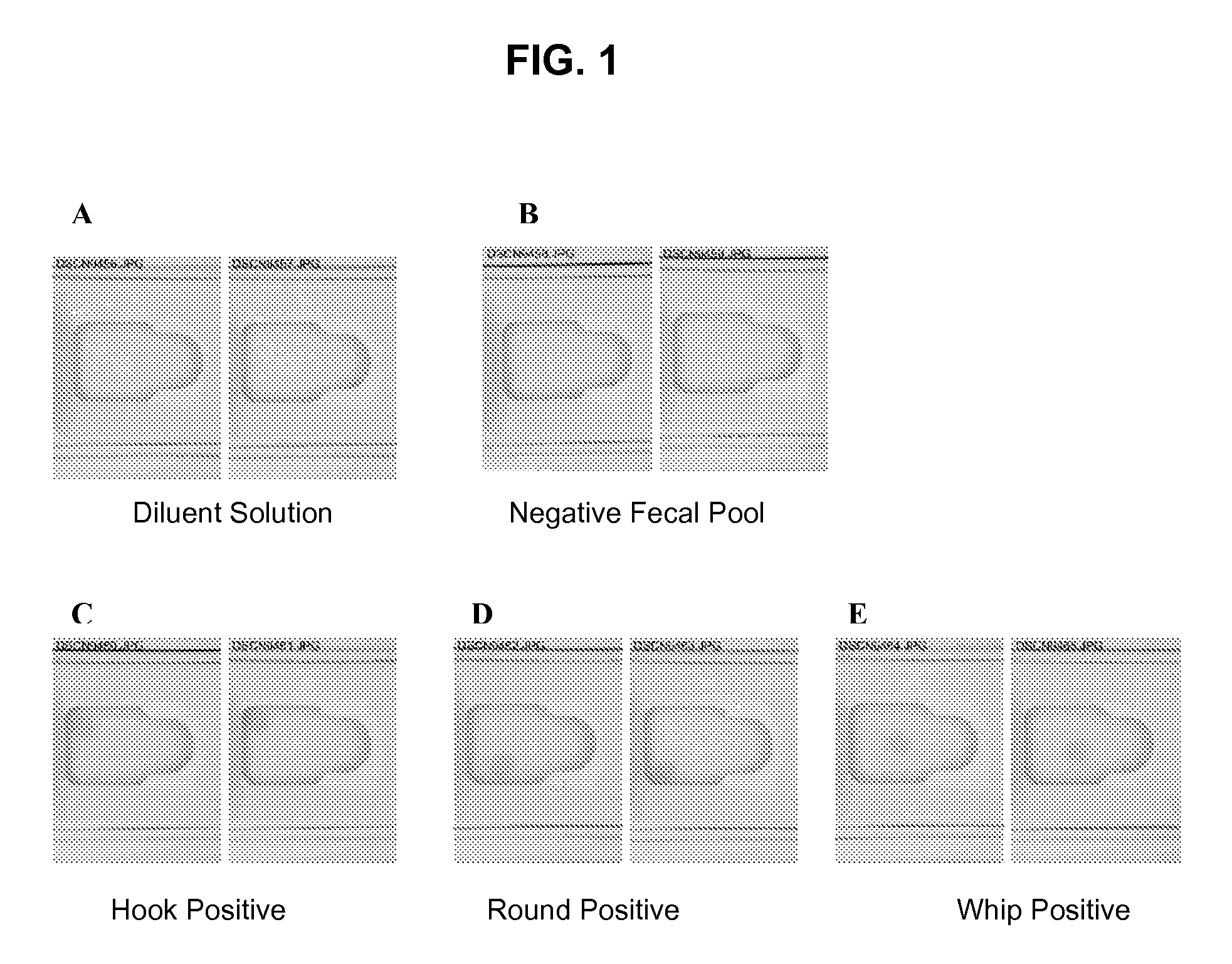Patents
Literature
Hiro is an intelligent assistant for R&D personnel, combined with Patent DNA, to facilitate innovative research.
345 results about "Class Mammalia" patented technology
Efficacy Topic
Property
Owner
Technical Advancement
Application Domain
Technology Topic
Technology Field Word
Patent Country/Region
Patent Type
Patent Status
Application Year
Inventor
Mammals (/ m ə ˈ m eɪ l i ə / from Latin mamma "breast") are vertebrate animals constituting the class Mammalia, and characterized by the presence of mammary glands which in females produce milk for feeding (nursing) their young, a neocortex (a region of the brain), fur or hair, and three middle ear bones.
Methods and apparatus for adjusting blood circulation
ActiveUS20080132976A1Good thermal contactIncrease blood flowBlood stagnation preventionElectrotherapyThermal energyEngineering
Embodiments of the invention include a method and a device for increasing blood flow and controlling the temperature of a mammal by applying a desired pressure to extremities of a mammal. The device generally includes one or more collapsible and pliant body elements, capable of expanding from a first volume into an expanded second volume so the device can receive a portion of an extremity of the mammal therein and then be reduced from the expanded second volume into a pressurized third volume to conformably enclose the portion of the extremity. One or more thermal exchange units can be positioned in the one or more collapsible and pliant body elements. Accordingly, the temperature of the extremity of a mammal can be regulated by providing a heated or cooled fluid medium or electric thermal energy to the one or more thermal exchange units. Next, by evacuating the region in which the extremity is enclosed the contact surface area between the extremity of a mammal and the one or more thermal exchange units is increased, due to the external atmospheric pressure acting on the pliant body elements against the skin of the extremity of the mammal. The application of pressure assures that sufficient contact and thermal heat transfer (heating or cooling) is provided to the extremity of the mammal.
Owner:AVACORE TECH
Bone joining apparatus and method
Provided is a bone joining device suitable for joining a first bone piece to a second bone piece. Also provided is a method of joining a first bone piece with a second bone piece in a living mammal. The method comprises inserting the above bone joining device between the first bone piece and the second bone piece.
Owner:ZIMMER INC
Method of using, and determining location of, an ingestible capsule
The present invention broadly provides an improved ingestible capsule (28) that is arranged to sense one or more physiological parameters within a mammalian body, an to transmit such parameters to an extra-corporeal receiver (50). In use, the capsule and receiver perform the method of determining the real-time location of the capsule within a tract of a mammal. This method includes the steps of providing the capsule, the capsule having one or more sensors, ingesting the capsule, transmitting a signal from the capsule, receiving the transmitted signal, and determining the real-time location of the capsule within the tract as a function of the received signal. The received signal may also indicate the value of one or more sensed parameters.
Owner:GIVEN IMAGING INC
Methods and Apparatus for Adjusting Blood Circulation
ActiveUS20080132816A1Increase blood flowSpeed up the flowDiagnosticsChiropractic devicesPositive pressureCombined use
A method and device for increasing blood flow by applying positive pressure to extremities of a mammal and / or controlling the temperature of the mammal. The device includes one or more collapsible and pliant body elements capable of expanding and flexibly applying pressurized compression forces to the extremity of the mammal by attaching one or more pressure-applying gas plenums as close to the extremity as possibly. The flexible extremity device can be used independently or can be used in conjunction with thermal pads disposed to the one or more collapsible and pliant body elements. Alternatively, the one or more collapsible and pliant body elements can be manufactured into thermal pads.
Owner:AVACORE TECH
Compositions and methods for treating coagulation related disorders
InactiveUS20060159675A1Initiate and prolong such disorderRelieve symptomsImmunoglobulins against blood coagulation factorsAntibacterial agentsDiseaseTissue factor
Disclosed are methods for preventing or treating sepsis, a sepsis-related condition or an inflammatory disease in a mammal. In one embodiment, the method includes administering to the mammal a therapeutically effective amount of at least one humanized antibody, chimeric antibody, or fragment thereof that binds specifically to tissue factor (TF) to form a complex in which factor X or factor IX binding to the complex is inhibited and the administration is sufficient to prevent or treat the sepsis in the mammal. The invention has a wide spectrum of useful applications including treating sepsis, disorders related to sepsis, and inflammatory diseases such as arthritis.
Owner:GENENTECH INC
REM-Sleep Directed Visual Alarm System and Method
ActiveUS20090207028A1Convenient timeMinimize pitfallDiagnostics using lightPerson identificationNadirMammal
The present apparatus and method for using the same detects REM in a sleeping mammal and awakens the mammal after the cessation of a specific episode of REM. The system comprises an alarm setting means for setting a predetermined wakeup time, a data collection means for collecting physiological data from the mammal over time, a processing means for determining the occurrence and cessation of REM and means of providing a stimulation signal for awakening the mammal within a prescribed window of time before said predetermined wakeup time and after the cessation of REM and after the mammal's nadir in body temperature with respect to time.
Owner:KUBEY ALAN +1
Portable system for assisting body movement
InactiveUS20090255531A1Lose weightPortable and convenientBlood stagnation preventionPneumatic massageExercise performanceBody movement
The present invention provides a differential pressure body suit with external support against body suit migration. In its preferred embodiment, such body suit may comprise a close-fitting, multi-layered suit sealed against a mammal's skin to contain the differential pressure, or a looser-fitting suit that bends at the mammal's joints with minimal force. External support means include either fixed or movable mechanical supports attached to the body suit, extraordinary air pressure levels for making the body suit rigid, or exoskeletons attached to the body suit. A cyclic control system can turn the differential pressure condition within the body suit on and off on a selective basis to accommodate the movement of the legs of the mammal. This differential pressure body suit provides a portable and convenient system for, e.g., rehabilitating a skeletal joint injury or training the mammal for injury prevention or athletic performance. The pressurization reduces the weight of the body to greater or lesser extents, and offloads the weight to the ground through the external support means.
Owner:LITE RUN
Bone joining apparatus and method
Provided is a bone joining device suitable for joining a first bone piece to a second bone piece. Also provided is a method of joining a first bone piece with a second bone piece in a living mammal. The method comprises inserting the above bone joining device between the first bone piece and the second bone piece.
Owner:ZIMMER INC
Method and invention for the treatment of diseases and disorders of the cervix
A method and device for delivering therapeutic agents to the cervix. The method utilizes a diaphragm with an electrically conductive surface that is placed atraumatically over the outer surface and inner os of the mammalian (animal or human) cervix. The agent is delivered to the diaphragm after which the conductive surface of the diaphragm may be charged by a power source to deliver a electrophoretic field to force the agent deep into cervical tissue and cells. The diaphragm may be used with or without the aid of external or internal leads. A unique intrauterine lead designed in this patent may also be used with the diaphragm to enhance delivery of therapeutic agents.
Owner:WU ALLAN
Systems containing temperature regulated medical devices, and methods related thereto
InactiveUS20050021088A1Free from damageAvoid tissue damageHeart defibrillatorsSurgical instruments for heatingSusceptorControl manner
Disclosed are systems for the application of heat to an area of the body of a mammal, a system including a device fabricated from or coated with a material comprising of a non-metal matrix and susceptor particles, a non-invasive inductor and magnetic circuit for heating the particles by transmitting an alternating magnetic field (AMF), and an alternating current generator that provides an alternating current to the inductor. Also disclosed are methods related to the non-invasive application of heat to mammalian tissue. These systems and methods are useful where heat must be applied in a controlled manner to avoid undesired damage to tissue.
Owner:TRITON BIOSYST
Suction device and dressing
ActiveUS20100262094A1Reduce pressureAvoid enteringIntravenous devicesDressingsTopical Negative-Pressure TherapyBiomedical engineering
Some embodiments are directed to a system 10 for the application of topical negative pressure therapy to a site 18 on the body of a mammal. Some embodiments of the system 10 comprise a piston 22 and cylinder 24 device 12 having a self-contained power source for the generation of a reduced pressure and for aspirating the site 18. Some embodiments of the system 10 comprise a dressing 14 sealably surrounding the site 18 that can be operably connected to the device 12 by a conduit means 16 to apply the reduced pressure to the site 18.
Owner:T J SMITH & NEPHEW
Apparatus and methods for non-invasive body contouring
InactiveUS20120191019A1Improve aestheticsImprove skin conditionUltrasound therapyChiropractic devicesHigh intensityNon invasive
Methods and devices for applying high intensity focused ultrasound to modulate collagen in animal tissue (such as to disrupt collagen fibrils in a mammal, such as a human), particularly to enhance the aesthetic appearance of skin, and / or to otherwise improve skin conditions.
Owner:LIPOSONIX
Devices for Detecting Renal Disorders
Devices for diagnosing, monitoring, or determining a renal disorder in a mammal are described. In particular, devices for diagnosing, monitoring, or determining a renal disorder using measured concentrations of a combination of three or more analytes in a test sample taken from the mammal are described.
Owner:MYRIAD RBM INC
Vaso-occlusive devices comprising complex-shape proximal portion and smaller diameter distal portion
Owner:STRYKER CORP +1
Substrate having properties of mammalian skin
ActiveUS20080167398A1Rapid and efficient and cost-effective product developmentEasy to produceSurgical adhesivesDiagnostic recording/measuringHardnessShore
Substrate comprising a discrete first layer comprising a first surface, an opposing second surface and a polymeric first material, wherein the first layer has a thickness of from about 1 micron to about 1000 microns and a hardness of from about 10 to about 80 on the Shore A scale; a discrete second layer comprising a first surface, an opposing second surface, and a second material, wherein the second layer has a hardness of from about 1 to about 70 on the Shore OOO scale and a thickness of from about 0.001 cm to about 2.0 cm; a discrete third layer comprising a first surface and a third material, wherein the third layer has a hardness of from about 0 to about 90 on the Shore D scale; and wherein the second surface of the first layer is in substantially fixed and continuous contact with the first surface of the second layer; the second surface of the second layer is in substantially fixed and continuous contact with the first surface of the third layer; and wherein the ratio of the average thickness of the second layer to the average thickness of the third layer is from about 4:96 to about 25:75.
Owner:THE PROCTER & GAMBLE COMPANY
Apparatus and method for manipulating core body temperature
InactiveUS6846322B2Facilitate energy exchangeFacilitate communicationPneumatic massageTherapeutic coolingEngineeringEnergy exchange
The present invention provides a system for manipulating a core body temperature of a mammal. The system of the invention includes a chamber for enclosing a body portion of a mammal and a seal in operative association with the chamber for sealing the chamber around the body portion and for inhibiting movement of the body portion relative to the chamber when the system is in operation. A thermal energy exchange system in operative association with the chamber includes an energy element assembly coupled to a flexible membrane assembly. The flexible membrane assembly facilitates an exchange of energy between the energy element assembly and the body portion. A vacuum system is operatively associated with the chamber while the thermal energy exchange system is in operation. The vacuum system generates a sub-atmospheric pressure within the chamber.
Owner:AVACORE TECH
Delivery device
InactiveUS20080161752A1Prevent escapePrevent premature ejectionInfusion syringesSurgerySurgeryTampon
An applicator for introducing a therapeutic substance into a body cavity of a subject in need of the therapeutic substance is provided. The applicator has the look and feel of a conventional tampon applicator but delivers a therapeutic substance. Generally, the applicator has a first outer member having a shape suitable for insertion into a body cavity of a mammal and has a dispensing end and a second end distal to the dispensing end. A second inner member is coaxially and slidably housed within the first member such that one end of the second inner member is within the first member. The applicator of the present invention also has at least one aperture located in a side wall of the outer member. The aperture is located on the side wall of the outer member between the dispensing end and the second end of the outer member.
Owner:KIMBERLY-CLARK WORLDWIDE INC
Suction device and dressing
ActiveUS8808259B2Reduce pressureIntravenous devicesSuction drainage systemsTopical Negative-Pressure TherapyBiomedical engineering
Some embodiments are directed to a system 10 for the application of topical negative pressure therapy to a site 18 on the body of a mammal. Some embodiments of the system 10 comprise a piston 22 and cylinder 24 device 12 having a self-contained power source for the generation of a reduced pressure and for aspirating the site 18. Some embodiments of the system 10 comprise a dressing 14 sealably surrounding the site 18 that can be operably connected to the device 12 by a conduit means 16 to apply the reduced pressure to the site 18.
Owner:T J SMITH & NEPHEW
Delivery device
An applicator for introducing a therapeutic substance into a body cavity of a subject in need of the therapeutic substance is provided. The applicator has the look and feel of a conventional tampon applicator but delivers a therapeutic substance. Generally, the applicator has a first outer member having a shape suitable for insertion into a body cavity of a mammal and has a dispensing end and a second end distal to the dispensing end. A second inner member is coaxially and slidably housed within the first member such that one end of the second inner member is within the first member. The applicator of the present invention also has at least one aperture located in a side wall of the outer member. The aperture is located on the side wall of the outer member between the dispensing end and the second end of the outer member.
Owner:KIMBERLY-CLARK WORLDWIDE INC
PRODUCTION OF BONE MORPHOGENIC PROTEINS (BMPs) IN TRANSGENIC MAMMALS
The present invention provides materials and methods for the production of recombinant BMPs in transgenic animals. In particular, the invention provides materials and methods for the production of recombinant BMPs in the milk of transgenic animals that express recombinant BMPs in the mammary gland.
Owner:CLOKIE CAMERON MALCOLM LANG +2
Gene therapy for niemann-pick disease type a
InactiveUS20090117156A1Symptoms improvedCompound screeningOrganic active ingredientsMedicineTransgene
This disclosure pertains to methods and compositions for tolerizing a mammal's brain to exogenously administered acid sphingomyelinase polypeptide by first delivering an effective amount of a transgene encoding the polypeptide to the mammal's hepatic tissue and then administering an effective amount of the transgene to the mammal's central nervous system (CNS).
Owner:GENZYME CORP
Wearable monitor
ActiveUS20190274574A1Facilitate and enhance experienceAccurate diagnosisMedical communicationElectrocardiographyHealth related informationEngineering
The present disclosure relates to a wearable monitor device and methods and systems for using such a device. In certain embodiments, the wearable monitor records cardiac data from a mammal and extracts particular features of interest. These features are then transmitted and used to provide health-related information about the mammal.
Owner:IRHYTHM TECH
Method of detecting and predicting ovulation and the period of fertility
A method of providing information relating to the fertility of a female mammal comprising the steps of: (i) taking multiple temperature readings from the female mammal during an extended period; (ii) identifying and disregarding temperature readings having one or more characteristics of irrelevant or faulty data; (iii) obtaining one or several representative temperature values for the extended period; (iv) repeating steps (i) to (iii) over multiple extended periods; (v) analyzing the representative temperature values obtained over multiple extended periods for one or more patterns in the representative temperature values indicative or predictive of ovulation in order to provide information relating to the fertility of the female mammal to a user, wherein the representative temperature values are not the maximum or minimum temperature readings obtained for the extended period; and related uses and apparatus.
Owner:FERTILITY FOCUS LTD
Length of self-retaining suture and method and device for using the same
ActiveUS20120101522A1Improve accuracyMinimal disruptionSuture equipmentsSurgical furnitureMammalSurgery
A method and device for anchoring a length of self-retaining suture. The method of anchoring includes providing for an assembly having a length of self-retaining suture and a suture insertion device. The length of suture includes at least a portion of the length having a plurality of retainers thereon extending in a first direction. The insertion device has a length and a recess to receive a portion of the suture length. The method further includes placing a portion of the suture length in the recess and inserting the device into the body of a mammal until the recess reaches a predetermined location thereby forming an insertion pathway. The method further includes retrieving the insertion device from the body by moving the insertion device in a direction substantially opposed to the insertion pathway.
Owner:CILAG GMBH INT
Suspension and Body Attachment System and Differential Pressure Suit for Body Weight Support Devices
ActiveUS20140026893A1Lose weightNot to restrict body movementBlood stagnation preventionOperating chairsControl systemExercise performance
The present invention provides a differential pressure body suit with external support against body suit migration. In its preferred embodiment, such body suit may comprise a close-fitting, multi-layered suit sealed against a mammal's skin to contain the differential pressure, or a looser-fitting suit that bends at the mammal's joints with minimal force. External support means include either fixed or movable mechanical supports attached to the body suit, extraordinary air pressure levels for making the body suit rigid, or exoskeletons attached to the body suit, or a counter-force suspension cable adjustment system. A cyclic control system can turn the differential pressure condition within the body suit on and off on a selective basis to accommodate the movement of the legs of the mammal. This differential pressure body suit provides a portable and convenient system for, e.g., rehabilitating a skeletal joint injury or training the mammal for injury prevention or athletic performance or fat burning. The pressurization reduces the weight of the body to greater or lesser extents, and offloads the weight to the ground through the external support means.
Owner:LITE RUN
Diagnosing intrapulmonary infection and analyzing nasal sample
InactiveUS6461306B1Quick checkWithdrawing sample devicesMedical automated diagnosisCerebrospinal fluidNasal passages
The presence of a pathologic process in a lung of a mammal is detected by applying exhaled gas of a mammal to an electronic nose (12). Data derived from the electronic nose (12) is used to determine whether a pathologic process is present in the lung of the mammal. The pathologic process may also be a lung infection such as pneumonia. Also, a mammalian fluid sample obtained from the sinus or nose is applied to an electronic nose (12) to determine if the fluid sample contains significant amounts of cebrospinal fluid.
Owner:THE TRUSTEES OF THE UNIV OF PENNSYLVANIA
Method for the production of fusion proteins in transgenic mammal milk
InactiveUS20060105347A1Short timeEfficient productionFungiPeptide/protein ingredientsHalf-lifeBiocompatibility Testing
Desirable fusion proteins can be produced in and purified from the milk of transgenic animals. The peptides are made as fusion proteins with a suitable fusion partner such as human alpha-fetoprotein. The fusion partner protein acts to promote and increase the half-life of the overall molecule as well as having therapeutic effects on its own. The fusion protein is typically produced through the use of transgenic animals and can be purified away from the now the milk or other bodily fluid of such an animal by an affinity purification method. A particular advantage of producing peptides via this route, in addition to the obvious advantages of high yield and biocompatibility, is that specific post-translational modifications, such as carboxy terminal amidation, can be performed in the mammary gland. Biologically active polypeptides comprising a therapeutically active polypeptide fused to human alpha-fetoprotein fragment or a variant thereof, methods for the preparation thereof, nucleotide sequences encoding such fusion polypeptides, expression cassettes comprising such nucleotide sequences, self-replicating plasmids containing such expression cassettes, and pharmaceutical compositions containing said fusion polypeptides.
Owner:GTC BIOTHERAPEUTICS INC
Subretinal delivery of therapeutic compositions
Owner:TEL HASHOMER MEDICAL RES INFRASTRUCTURE & SERVICES
Methods, devices, kits and compositions for detecting roundworm, whipworm, and hookworm
Methods, devices, kits and compositions for detecting the presence or absence of one or more helminthic coproantigens in a sample are disclosed herein. The methods, devices, kits and compositions of the present invention may be used to confirm the presence or absence of roundworm, whipworm and / or hookworm in a fecal sample from a mammal and may also be able to distinguish between one or more helminth infections. Confirmation of the presence or absence of roundworm, whipworm and / or hookworm in the mammal may be made, for example, for the purpose of selecting an optimal course of treating the mammal and / or for the purpose of determining whether the mammal has been rid of the infection after treatment has been initiated.
Owner:IDEXX LABORATORIES +1
An in-column mammal counting method based on an instance segmentation algorithm
ActiveCN109785337AAvoid stress responseImprove recognition accuracyImage analysisCharacter and pattern recognitionData setMammal
The invention discloses an in-column mammal counting method based on an instance segmentation algorithm, and belongs to the field of computer vision. The method includes: collecting and sending An image of a mammal in the fence to a workstation through a camera; Selecting images with clear target contours, dividing the images into a training set, a verification set and a test set, and using the training set, the verification set and the test set as data sets for model training; Secondly, generating a segmentation model for testing through an instance segmentation algorithm of deep learning; Sequentially inputting the test set images into a segmentation model generated by training for prediction, and outputting a test result and a test effect picture; After the test is finished, automatically storing the test effect picture; Finally, counting the target bounding box in the test result, thereby achieving the counting of the number of targets in the image. According to the method, the neural network is utilized to train the model, complex image preprocessing steps are avoided, and the identification accuracy of the blocked target is effectively improved.
Owner:HARBIN ENG UNIV
Features
- R&D
- Intellectual Property
- Life Sciences
- Materials
- Tech Scout
Why Patsnap Eureka
- Unparalleled Data Quality
- Higher Quality Content
- 60% Fewer Hallucinations
Social media
Patsnap Eureka Blog
Learn More Browse by: Latest US Patents, China's latest patents, Technical Efficacy Thesaurus, Application Domain, Technology Topic, Popular Technical Reports.
© 2025 PatSnap. All rights reserved.Legal|Privacy policy|Modern Slavery Act Transparency Statement|Sitemap|About US| Contact US: help@patsnap.com
